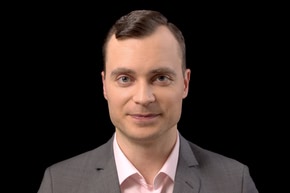Memory coach
Told you about myself, so you understand who you pay your money to ☺︎
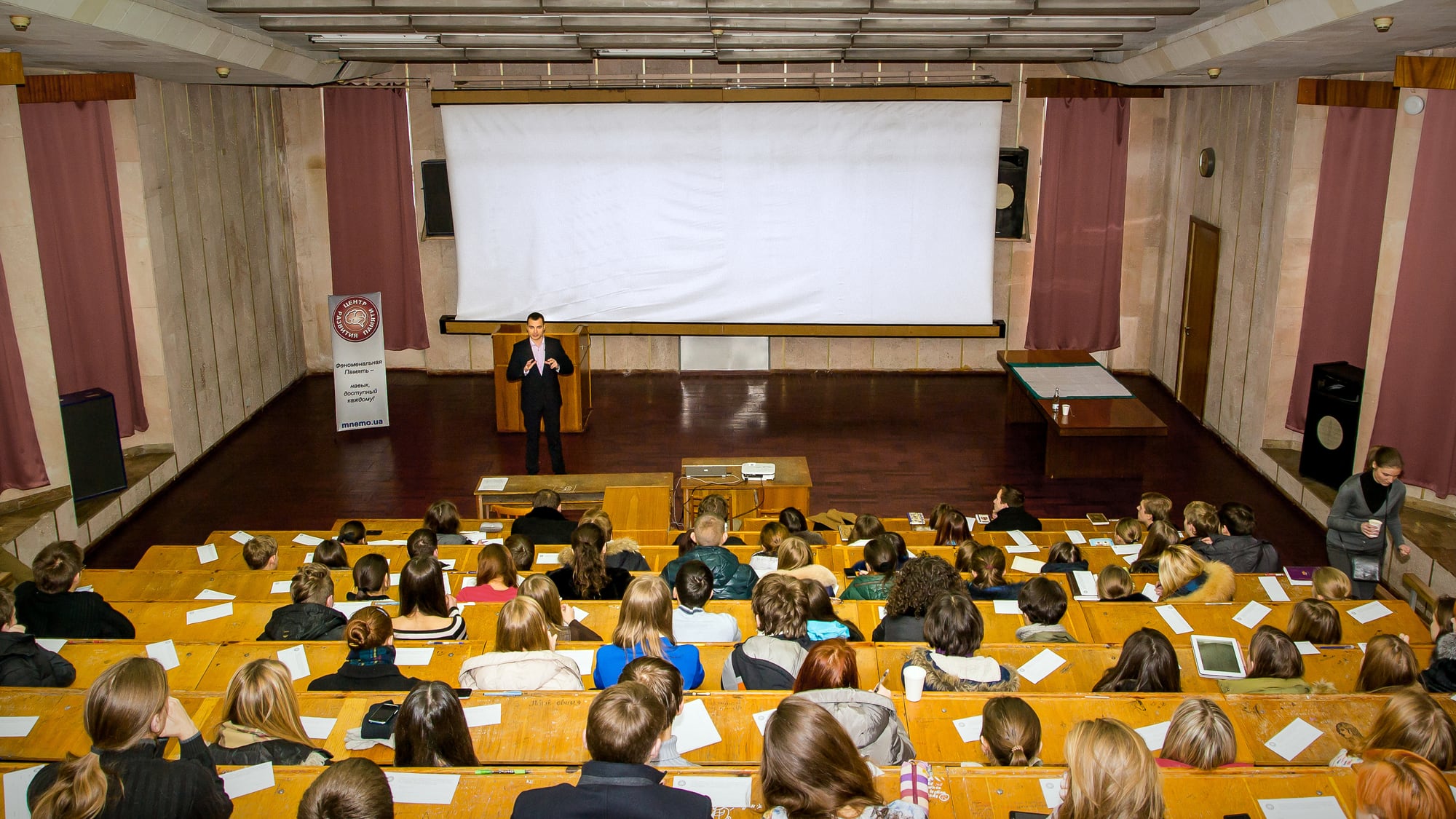
Who I am
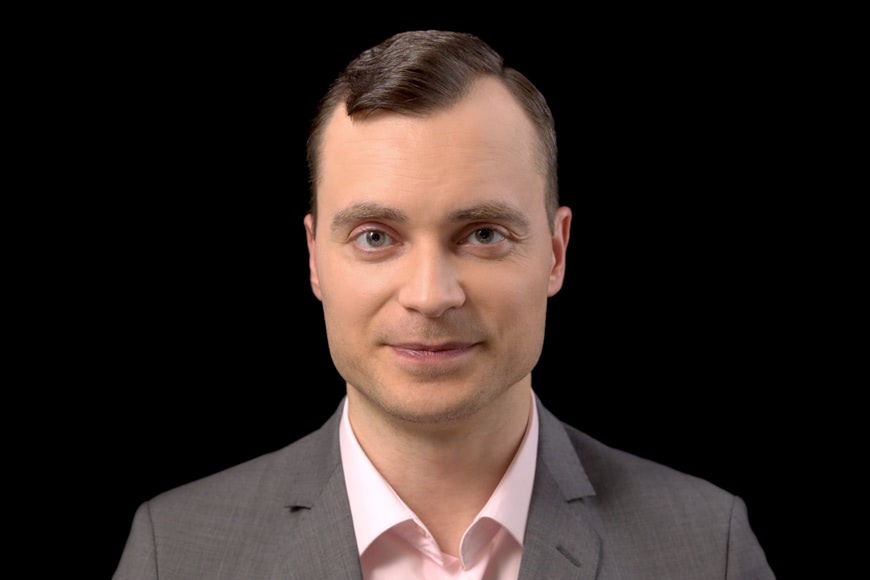
I teach
I teach people to memorize word for word, letter for letter, number for number at a rate of 200 characters in 10 minutes: the precision and speed are like regular note-taking, only you write right into your brain. Then you determine the length of time the information is stored in your head and you move through memory as you would through computer files.
A mnemonic device, or memory device, is any learning technique that aids information retention or retrieval (remembering) in the human memory for better understanding

School
Since childhood, I have been interested in methods of intellectual development.
I studied at the Gymnasium of Oriental Languages in Kyiv, the only place in Ukraine where Chinese was taught. Back then it was a boarding school. In Soviet times, that was the name given to “closed educational institutions for the in-depth study of particular disciplines with students staying around the clock.”
We were fully supported, but our parents still gave us pocket money. In 1991 I used the money saved to buy one of the first books on speed-reading in the USSR—Andreev and Khromov’s textbook “Learn to Read Quickly.”
I was 11 years old and wanted to spend the money on ice cream and soda. But the desire to read faster and understand more deeply was stronger. Then I mastered mnemonics and it always helped me out later on.
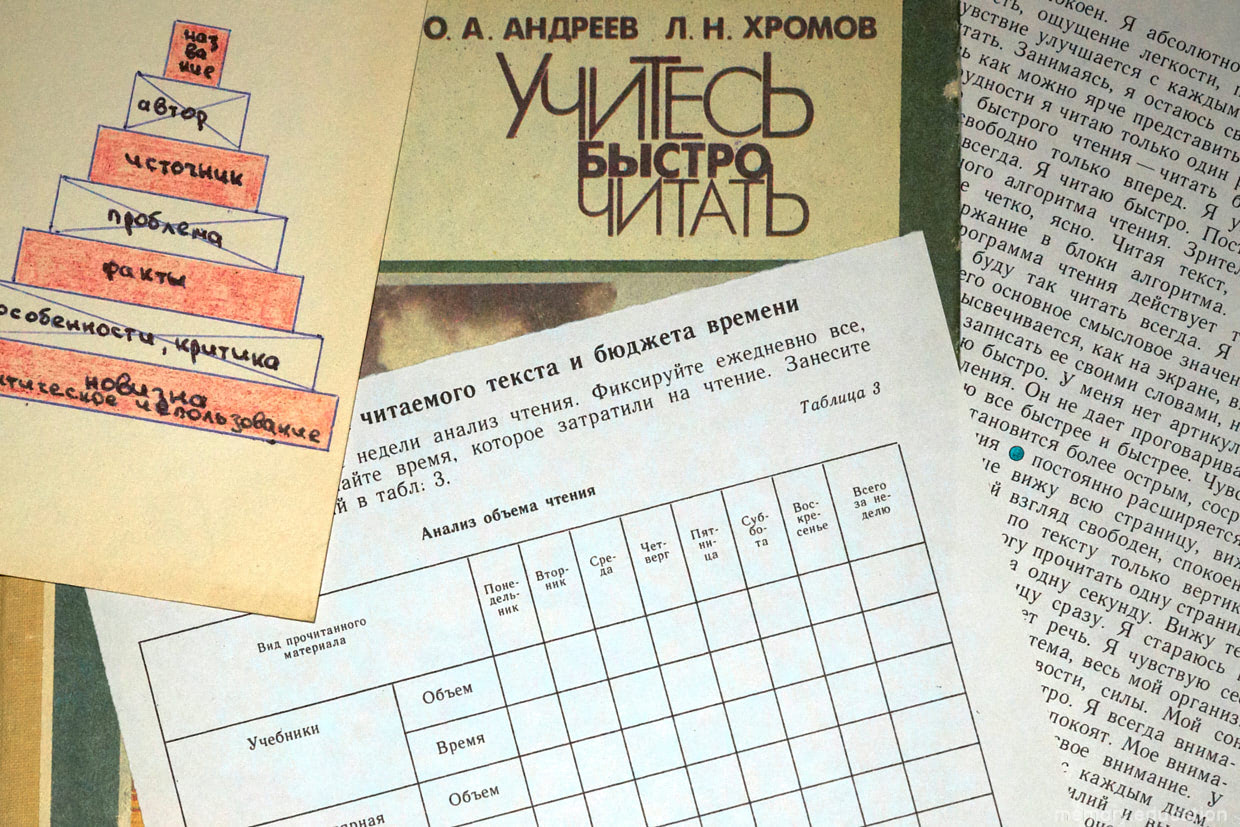
Jurisprudence
In 2001 I graduated from the Faculty of Law of the Taras Shevchenko National University of Kyiv and for 10 years I headed the legal departments of companies.
Mnemonics helped me stand out from the rest, for whom “the lawyer is not the one who remembers the law, but the one who knows where to look it up.”
In courts, representatives of the other side first write their claim or objection and then read it out at the hearing.
Judges sometimes have fun:
- Are you saying I can’t read?!
- No, Your Honor, of course not!
- Then why are you reading to me what I’ve already read? Or are you telling me I haven’t prepared for the hearing?
After such a psychological attack you usually break down. Judges don’t do this out of spite. They think they are tempering young lawyers. But it is shameful to say that for 20 years they have been reciting the same text about the rights and obligations of the parties. Although this paragraph can be memorized in 5 minutes.
In courts, I operated with sums, dates, terms of contracts, and article numbers without any paperwork. This greatly increased my credibility.
The Magical Number Seven, Plus or Minus Two. It is often interpreted to argue that the number of objects an average human can hold in short-term memory is 7 ± 2. This has occasionally been referred to as Miller’s law
When I was young, I used to fool around. When my company was an investor in important negotiations, I assessed the risks. The other party would come in with a team of lawyers. They were all wearing ties and carrying briefcases, diligently writing down every word.
And then I walk in empty-handed: no pen, no notebook. The other side relaxes. They see the head of the legal department, who was invited for appearance. Difficult negotiations and he only listens. They can sell anything they want.
But at the end, I took the floor: “In paragraph 12, you said so-and-so. And in paragraph 47—so-and-so. It contradicts paragraph 32, where you said this and that. Besides, it’s not clear how it agrees with this and that in paragraph 28.”
And so methodically continued with each statement. After that, their faces and attitudes changed. They no longer wanted to sell.
Philosophy of Science
In 2010, I went to the postgraduate program at the Faculty of Philosophy of the Taras Shevchenko National University of Kyiv.
I had a department of theoretical and practical philosophy. There worked the best specialists in gnoseology and epistemology, metaphysics and ontology, hermeneutics and phenomenology, philosophical anthropology, social philosophy, structuralism, and philosophical theories of communication.
These are new fields for me, I am a lawyer by education. And the postgraduate students were philosophers. Before that, they were full-time students in the Faculty of Philosophy: 4 years of undergraduate and 2 years of graduate school. Their theses were almost finished dissertations.
Without mnemonics I would have been lost for sure: I would not have passed my entrance exams and Ph.D. exams, and I would not have been able to participate in department meetings and scientific discussions. And I certainly would not have defended my dissertation on the philosophy of science.
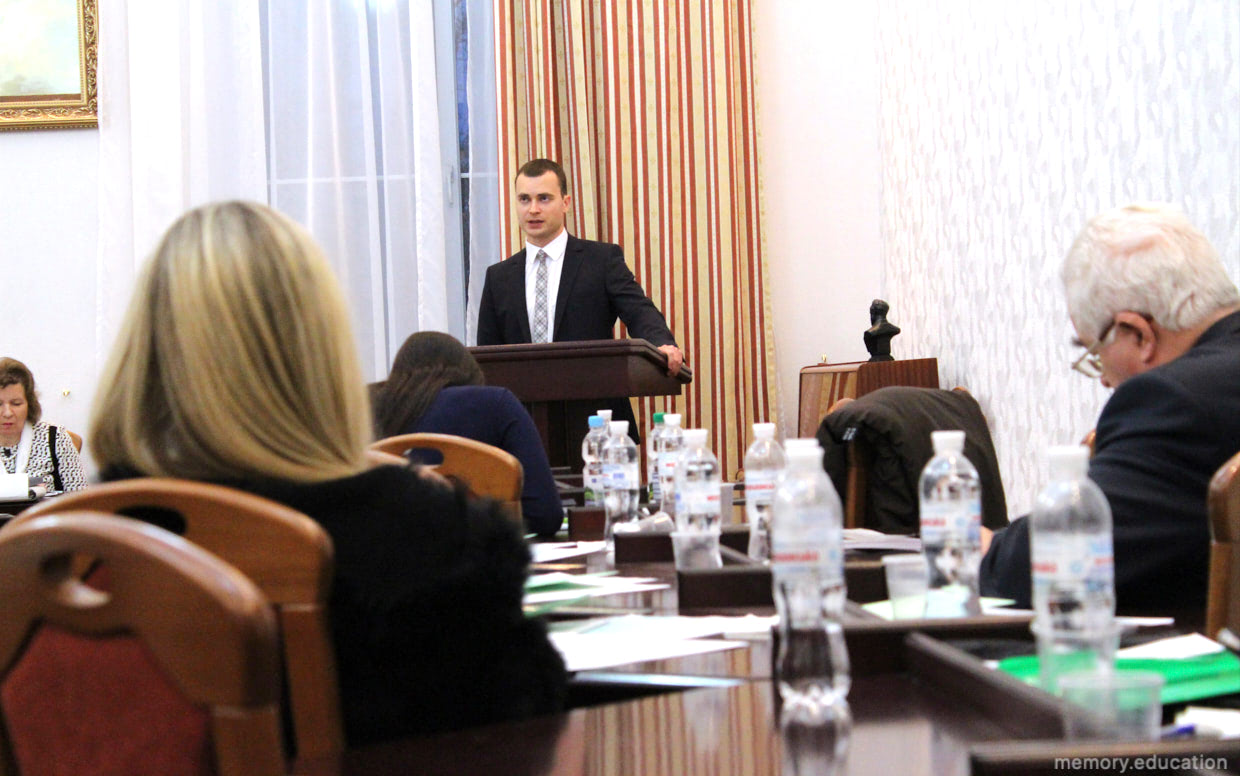
Memory Masterclasses
I’ve been teaching mnemonics for a long time.
Already in 2005, I was teaching individually: I developed methods and looked for an approach to people of different psychotypes.
Since 2012 I’ve been teaching groups and training companies to help more people.

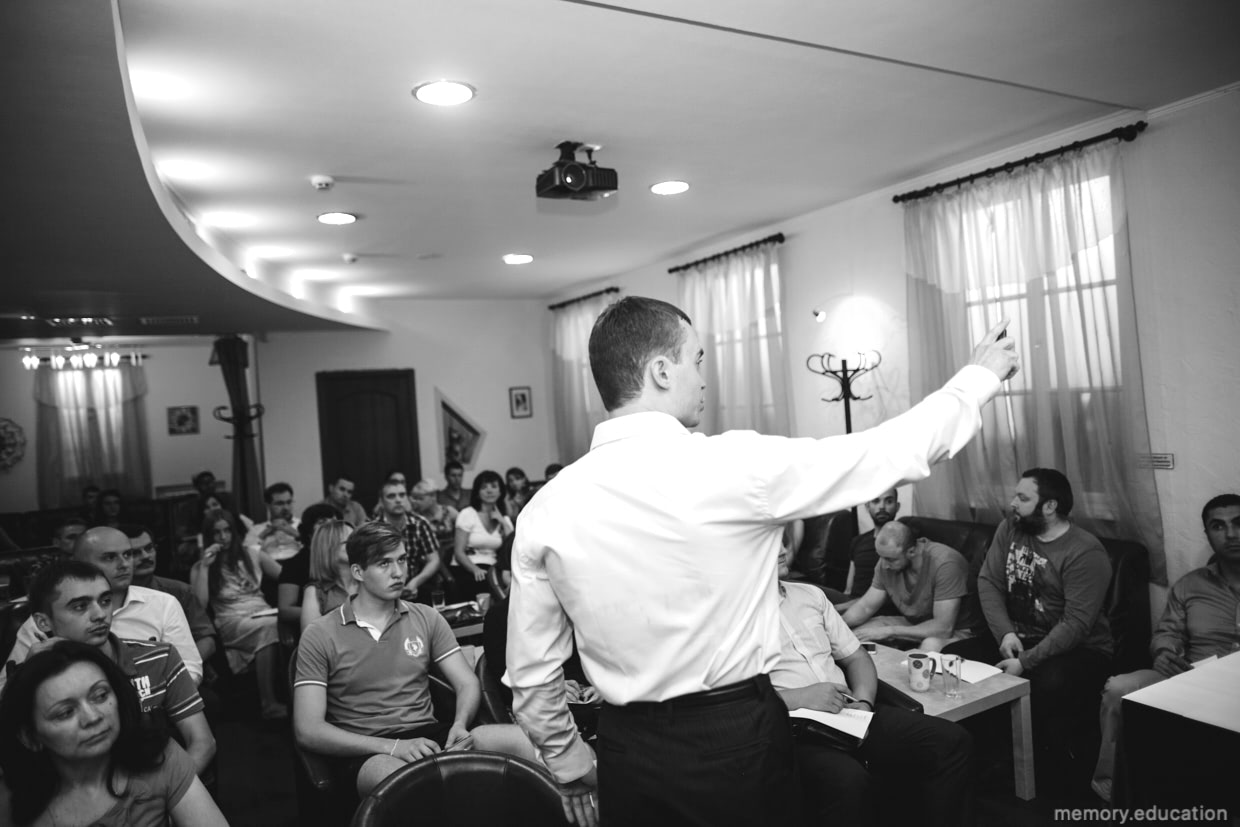

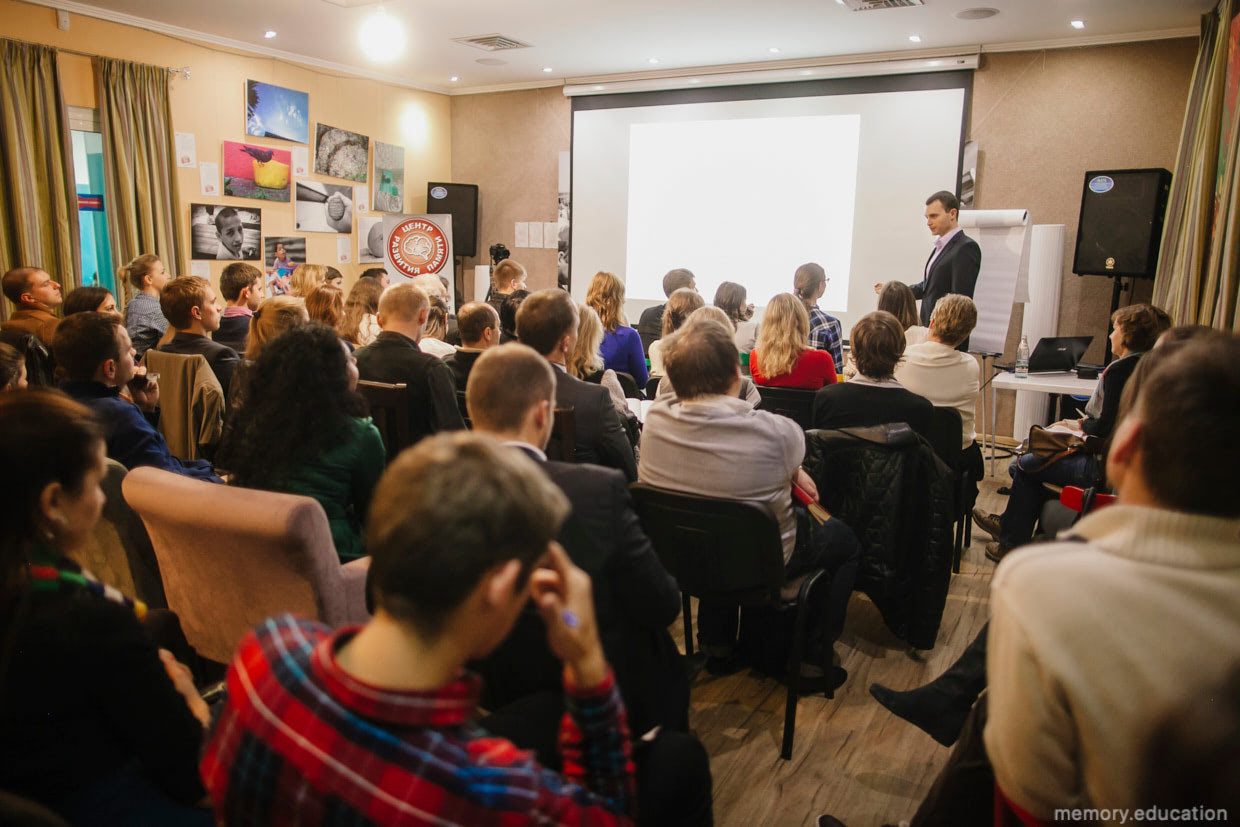
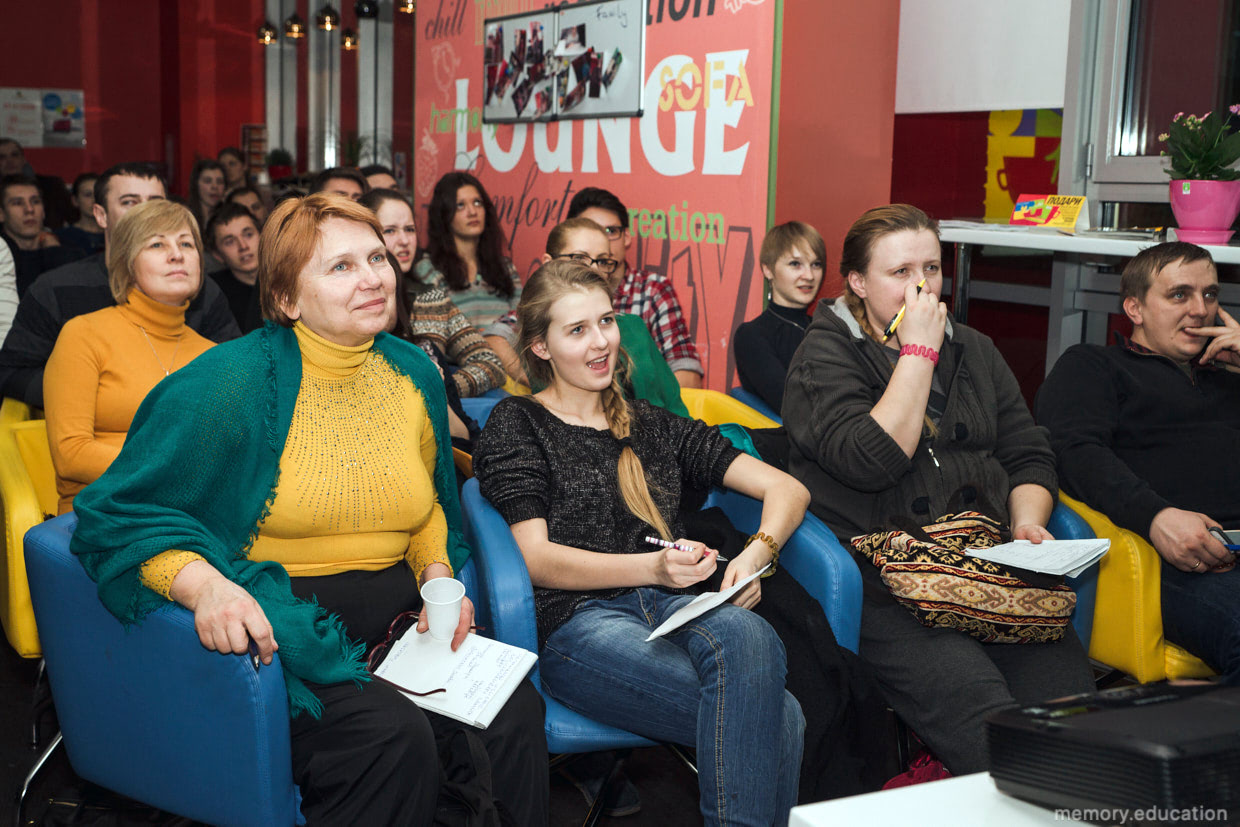
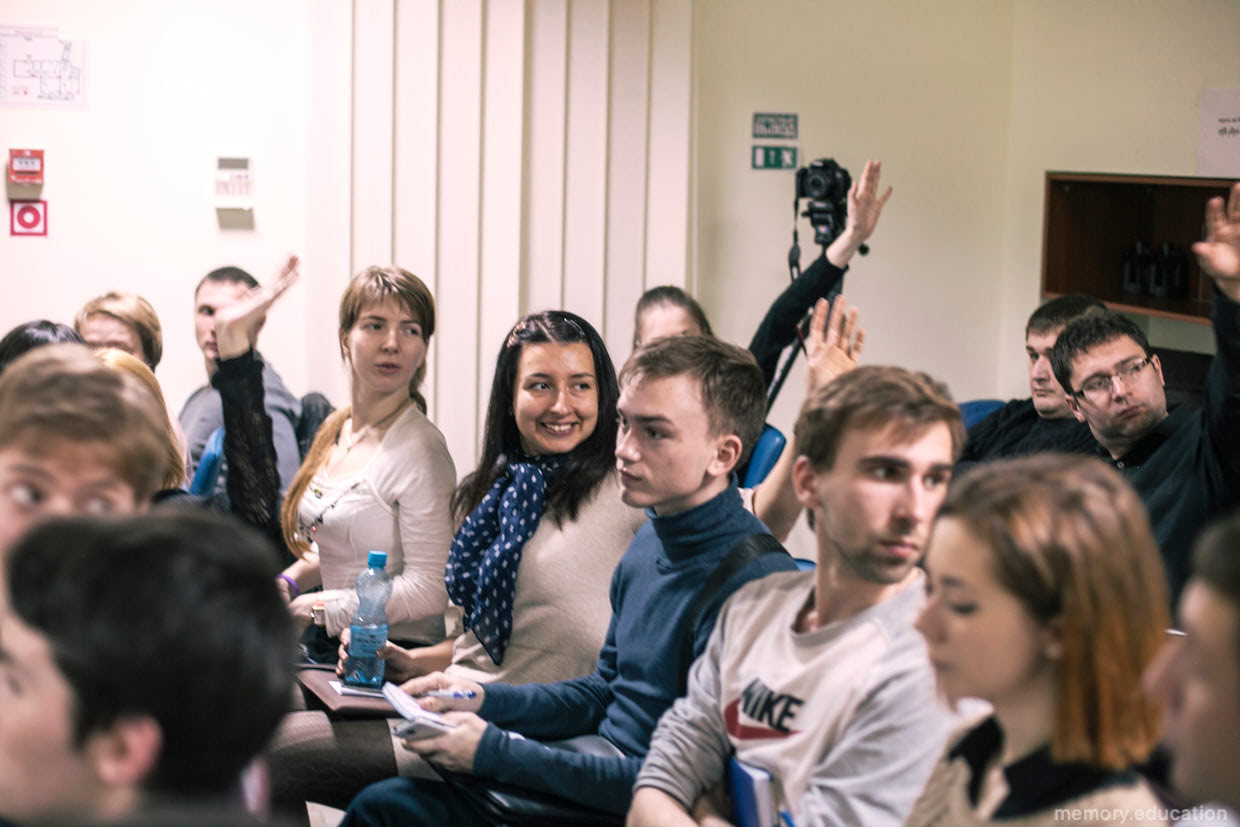
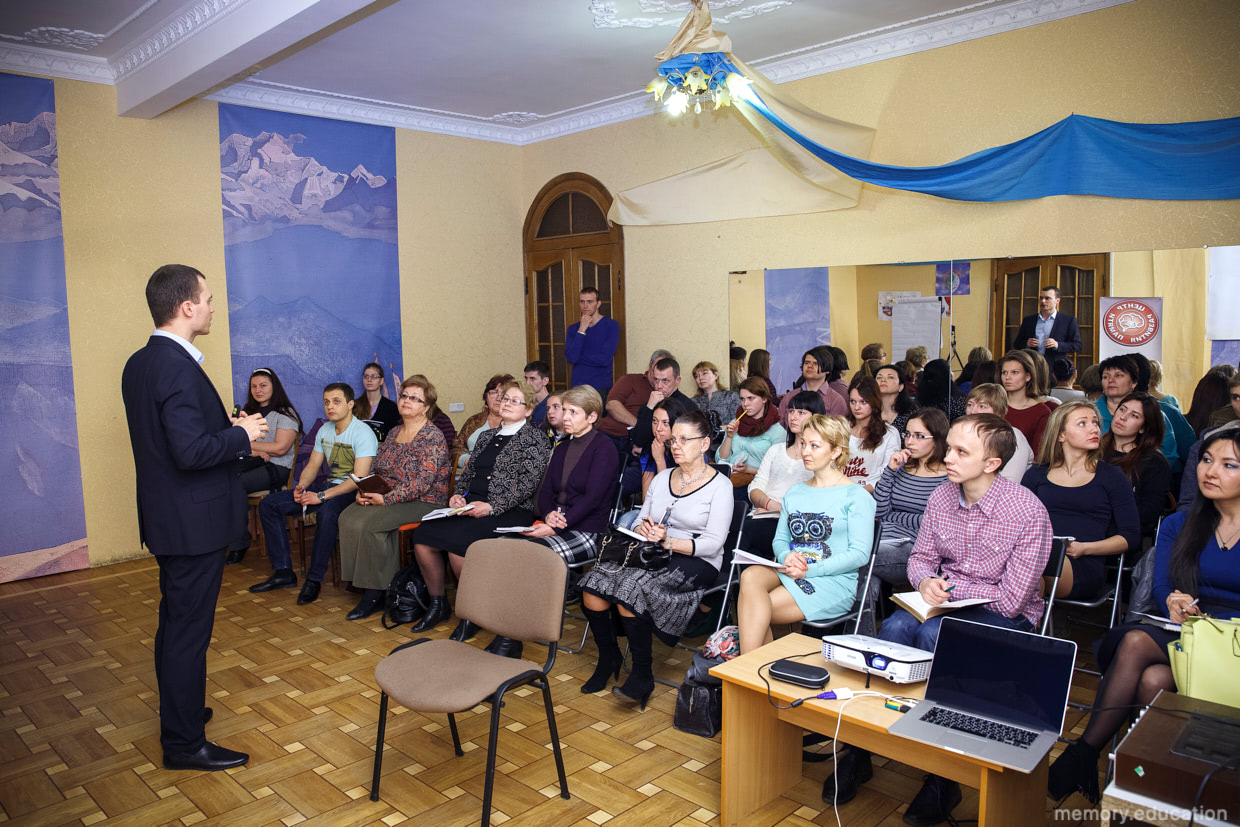
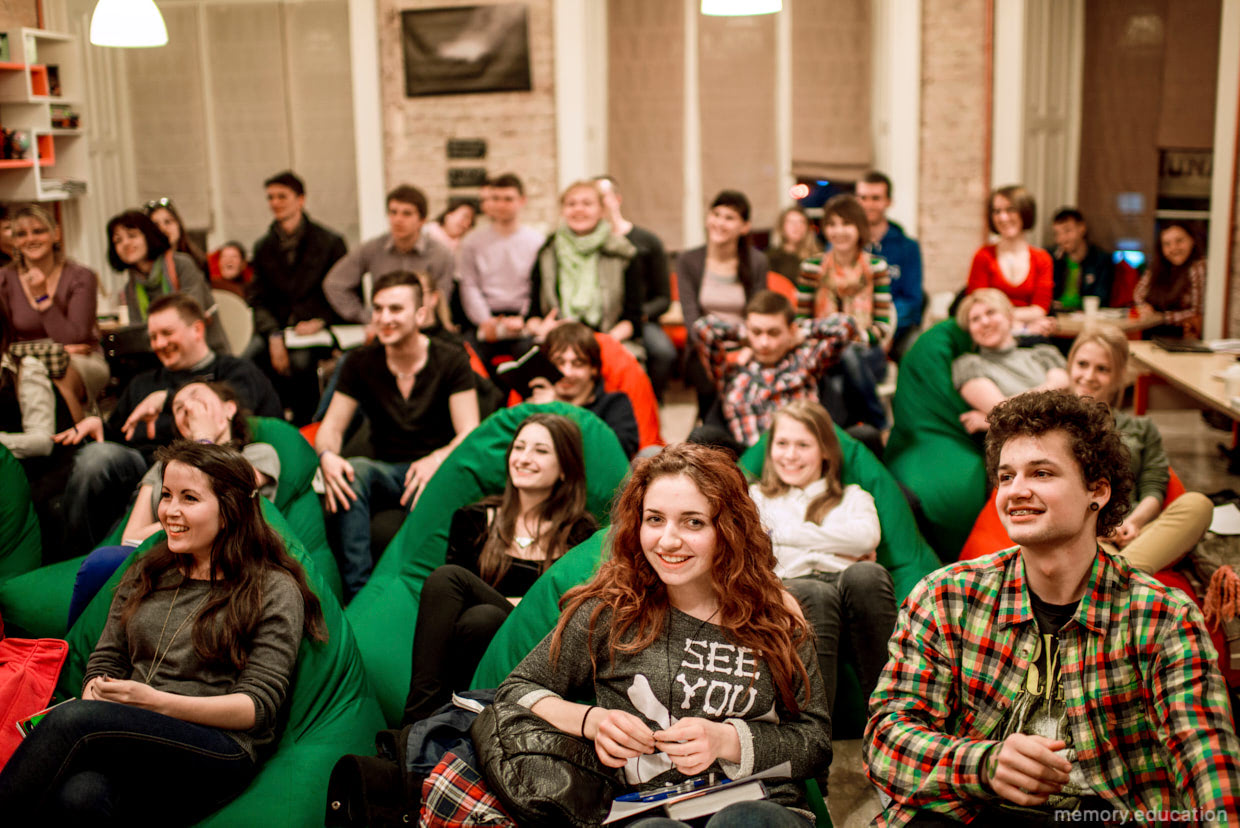
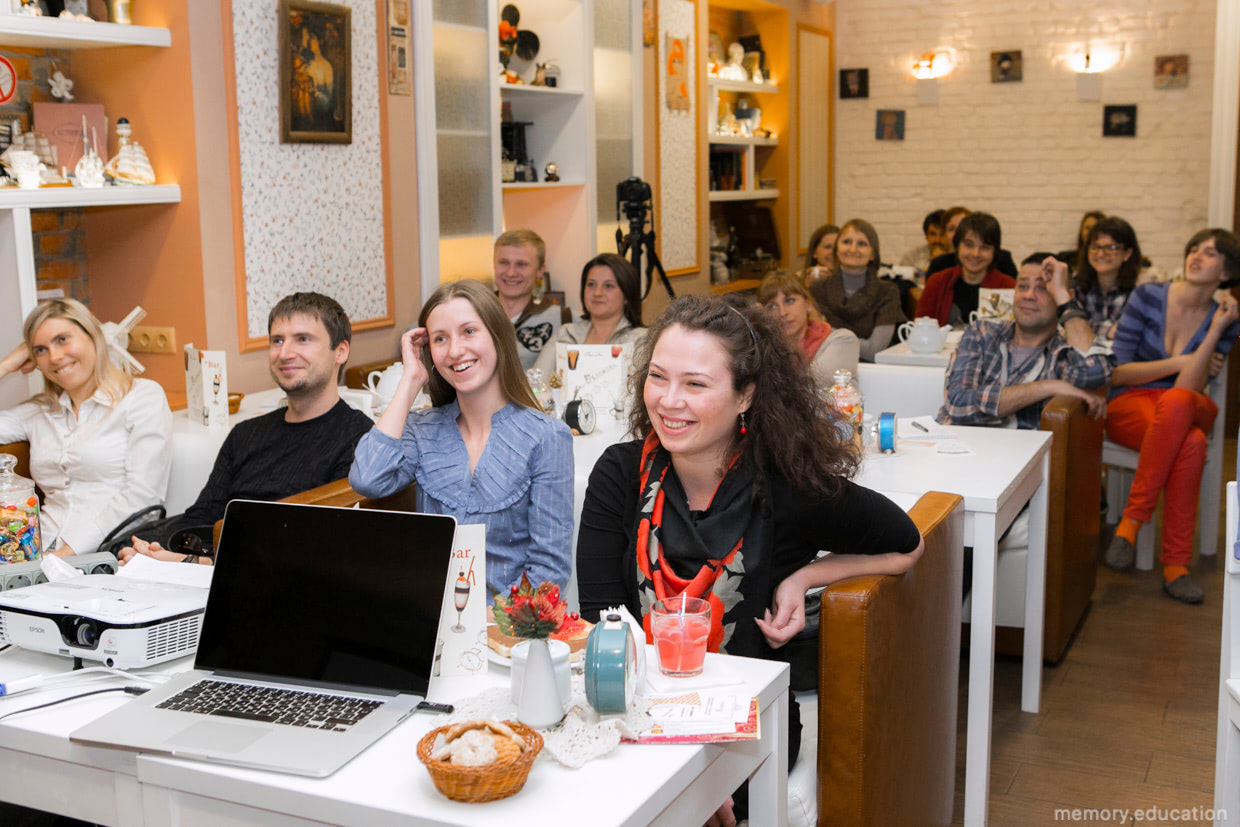
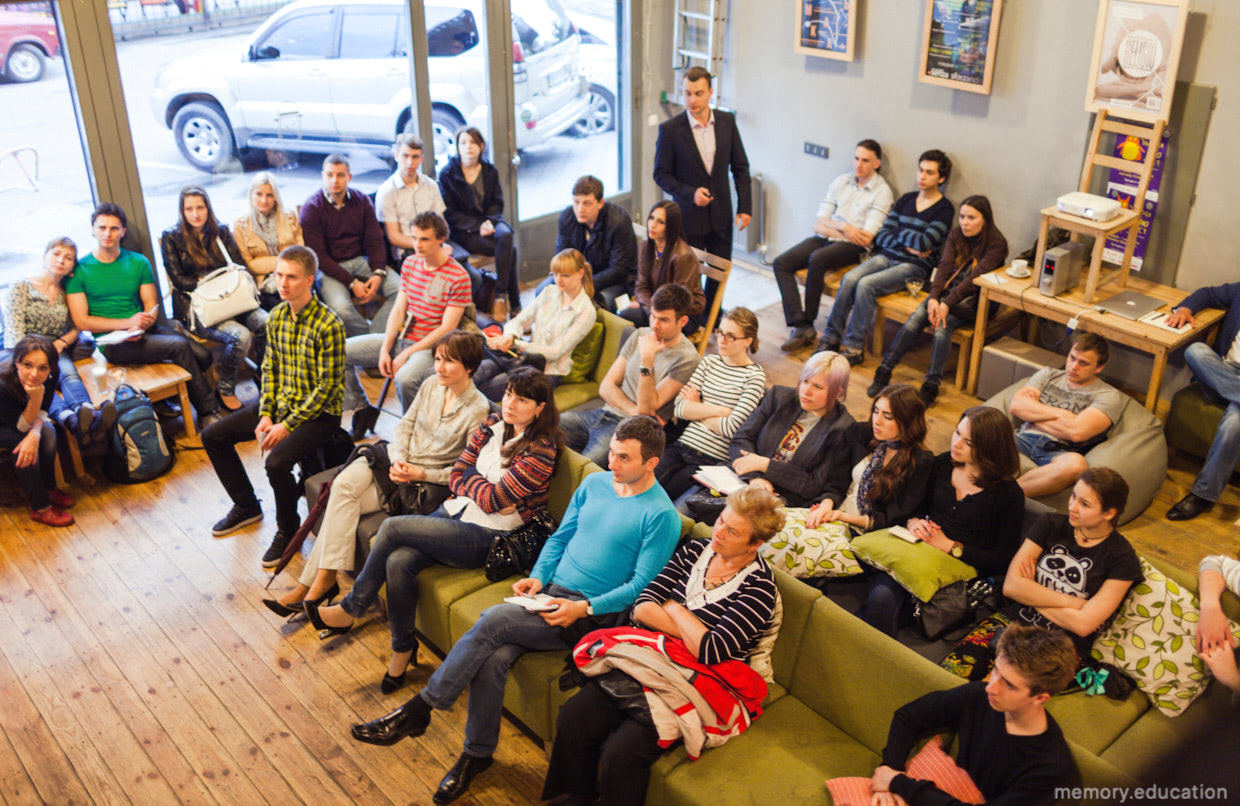
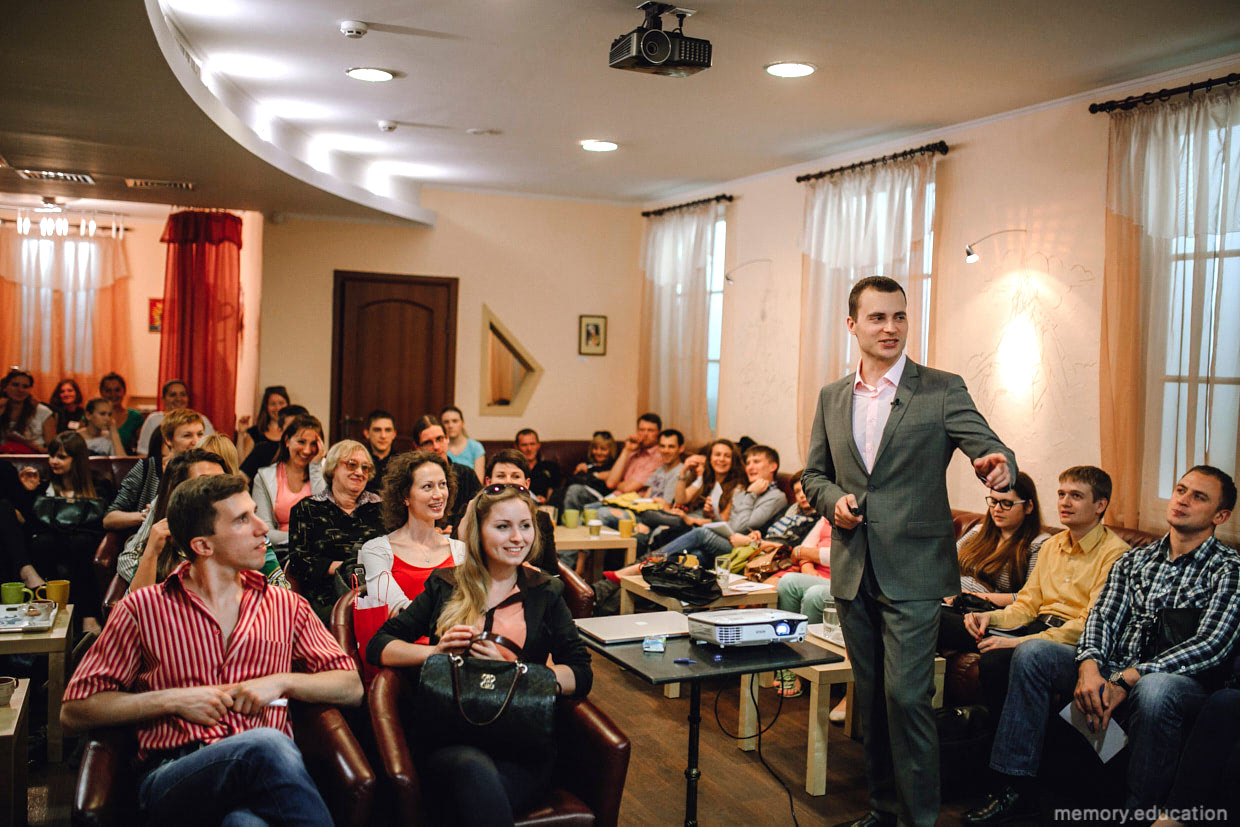
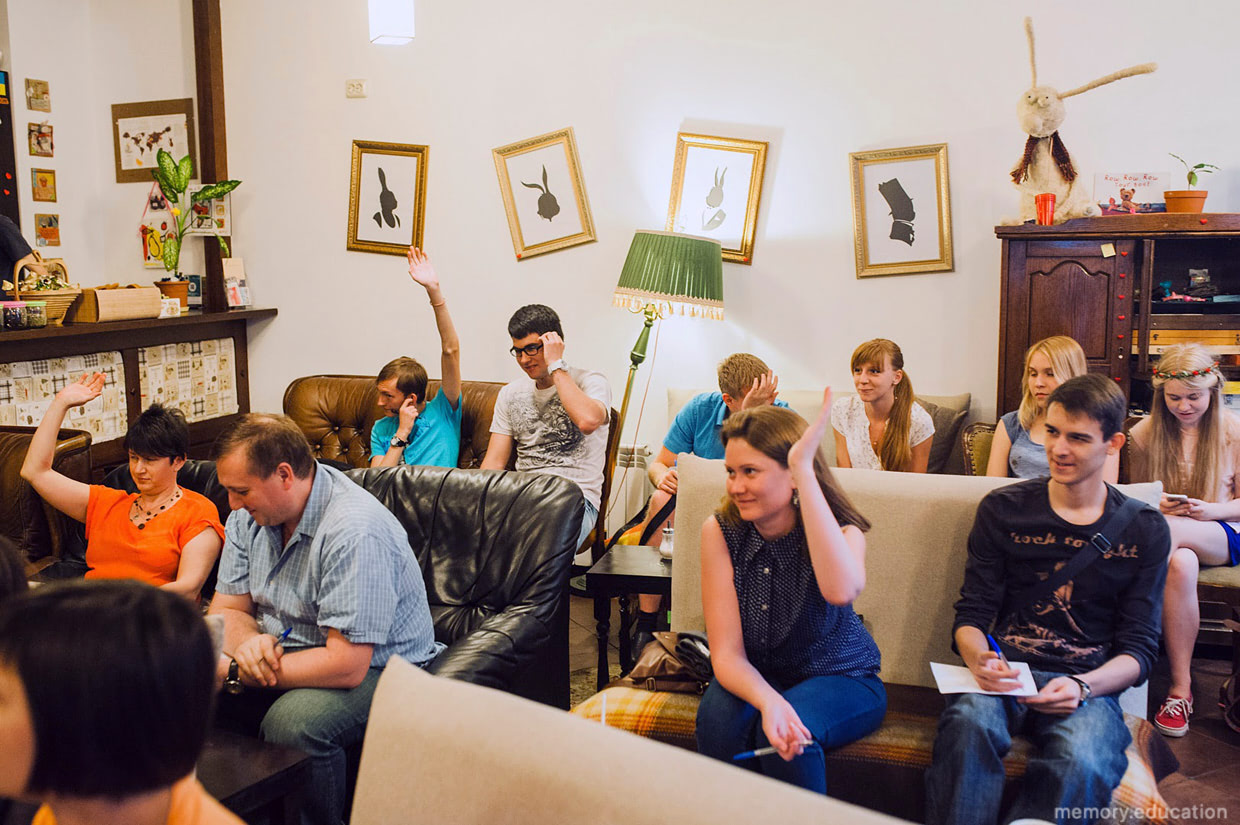
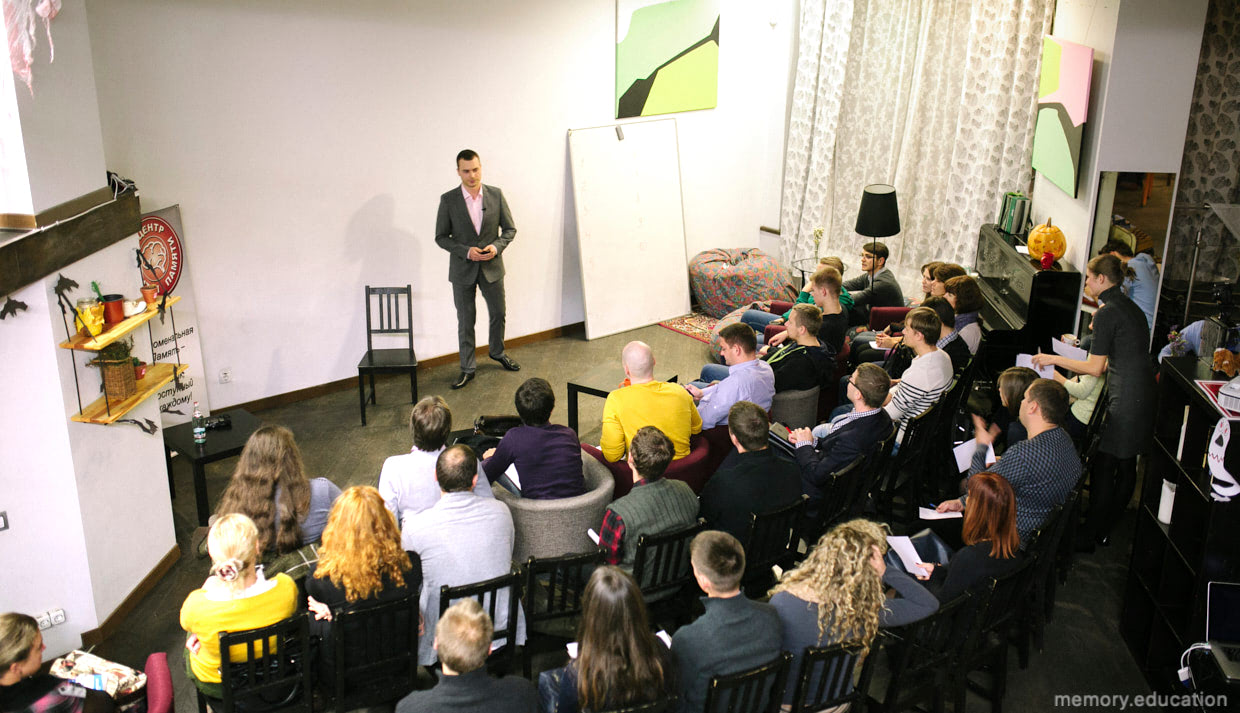
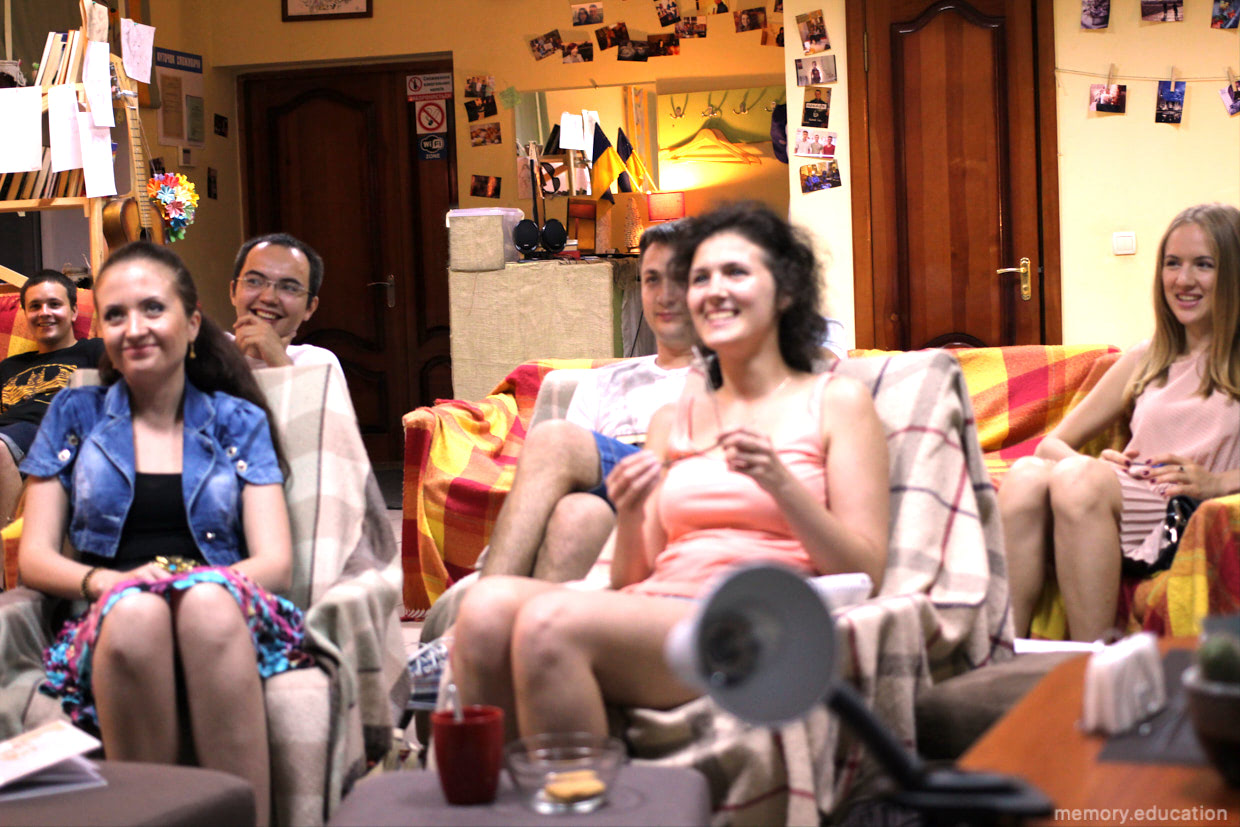
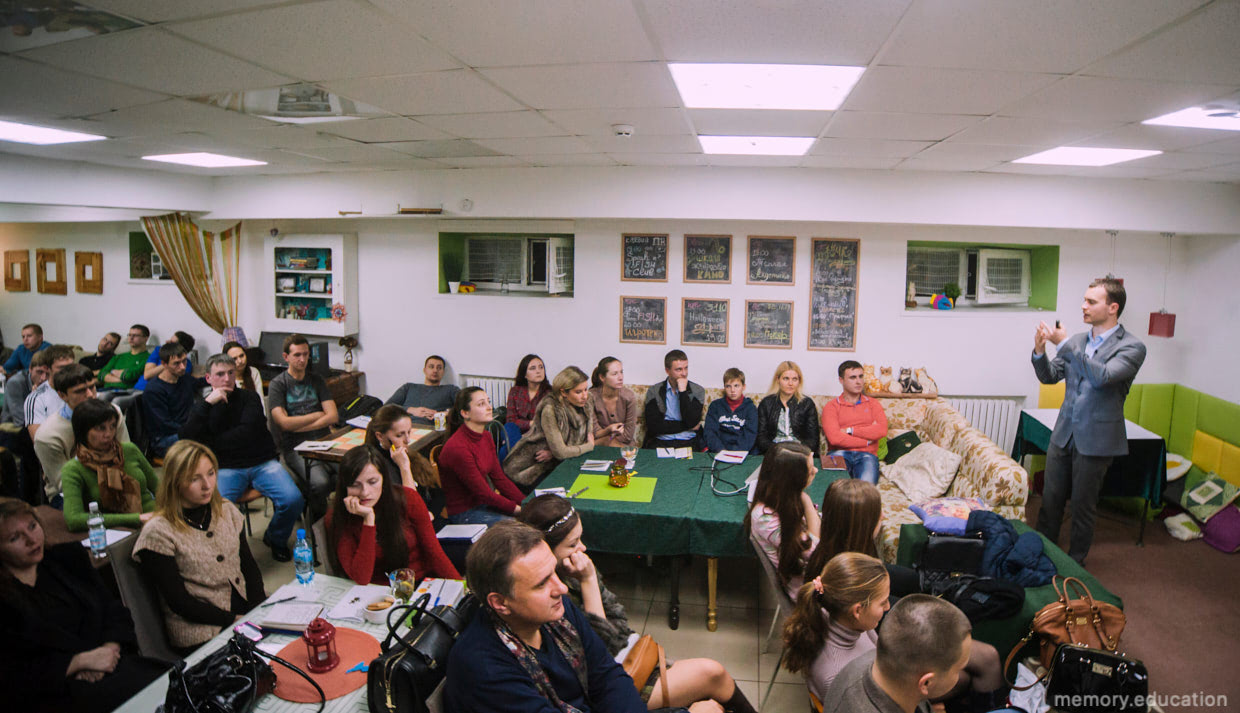
Phenomenal Memory
So that people would not get tired at the masterclasses, I sometimes showed “phenomenal memory wonders.”
It was only later that Superhuman, The Brain, and other theatrical productions appeared on TV.
I had to perform live, in unfamiliar places, sometimes in front of an unfriendly audience. You can’t cheat there, you can’t re-record, you can’t get your people involved.

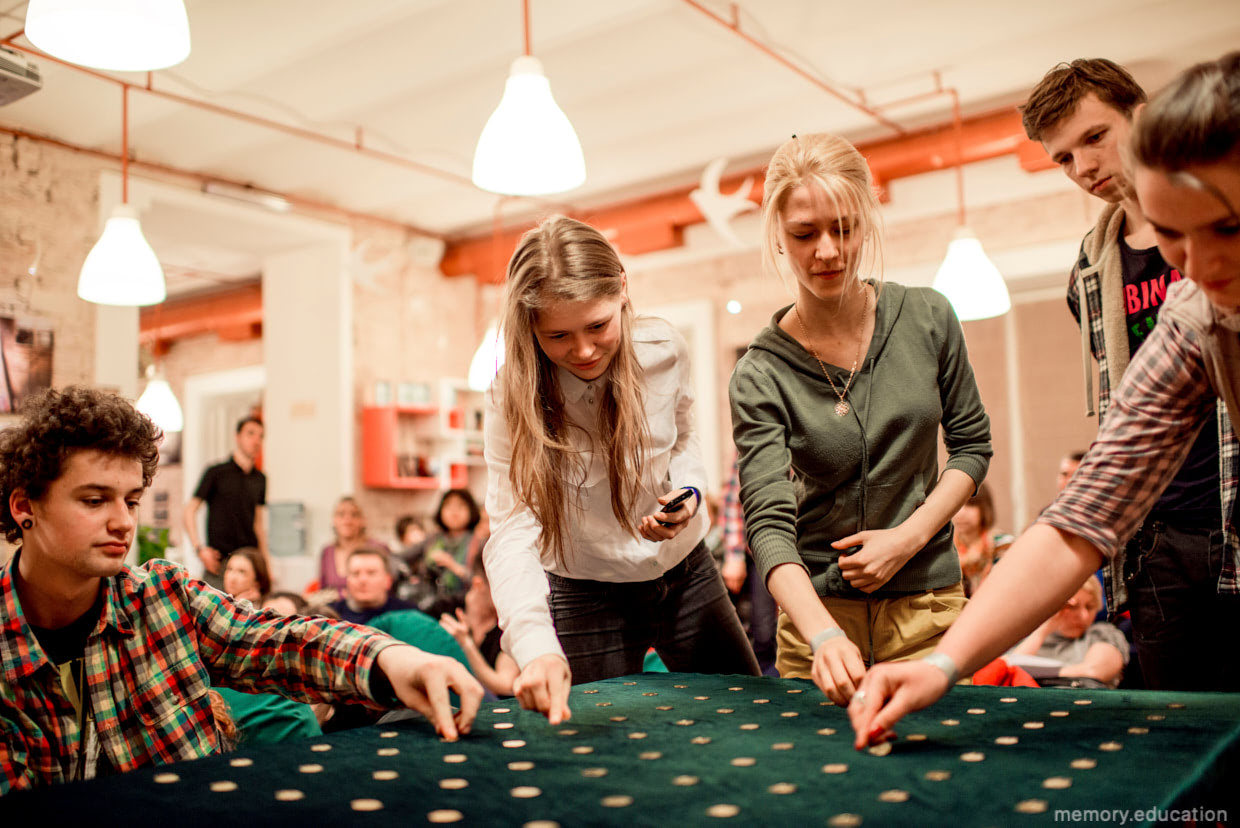
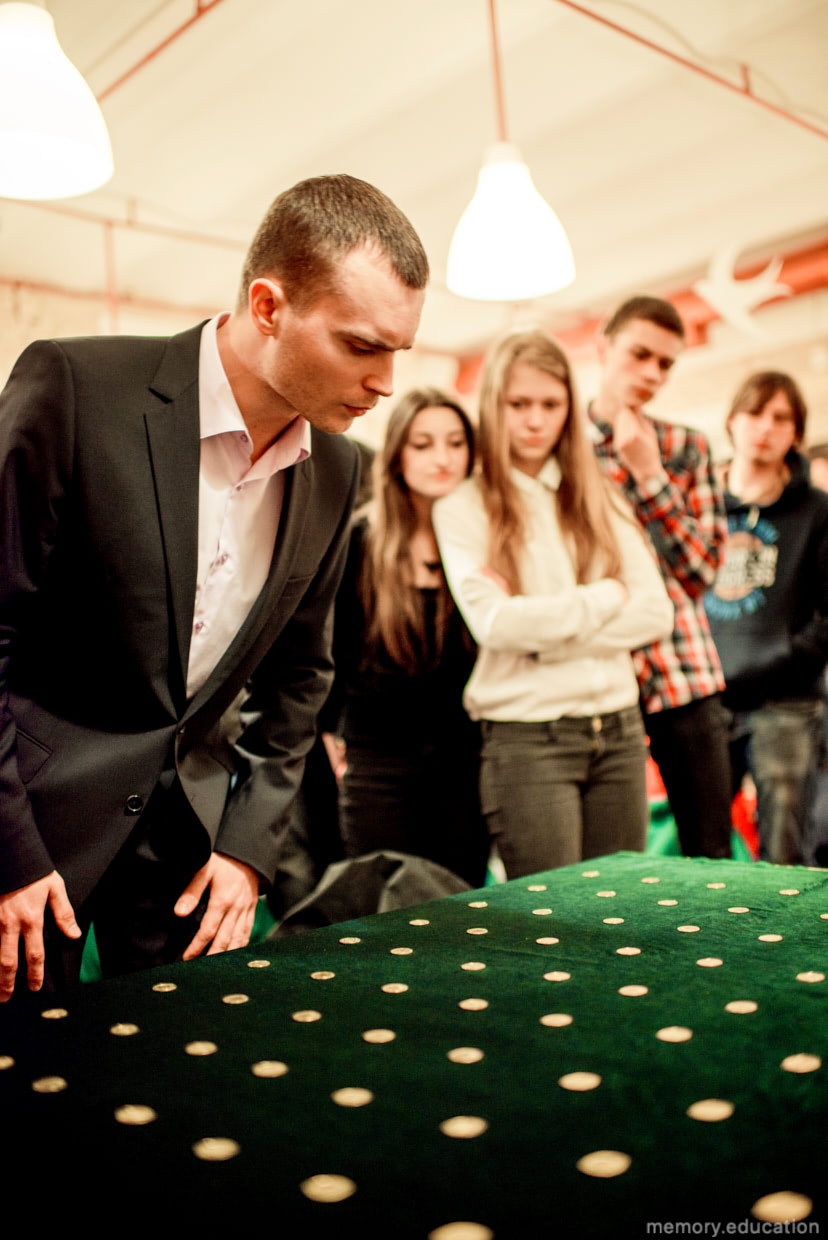
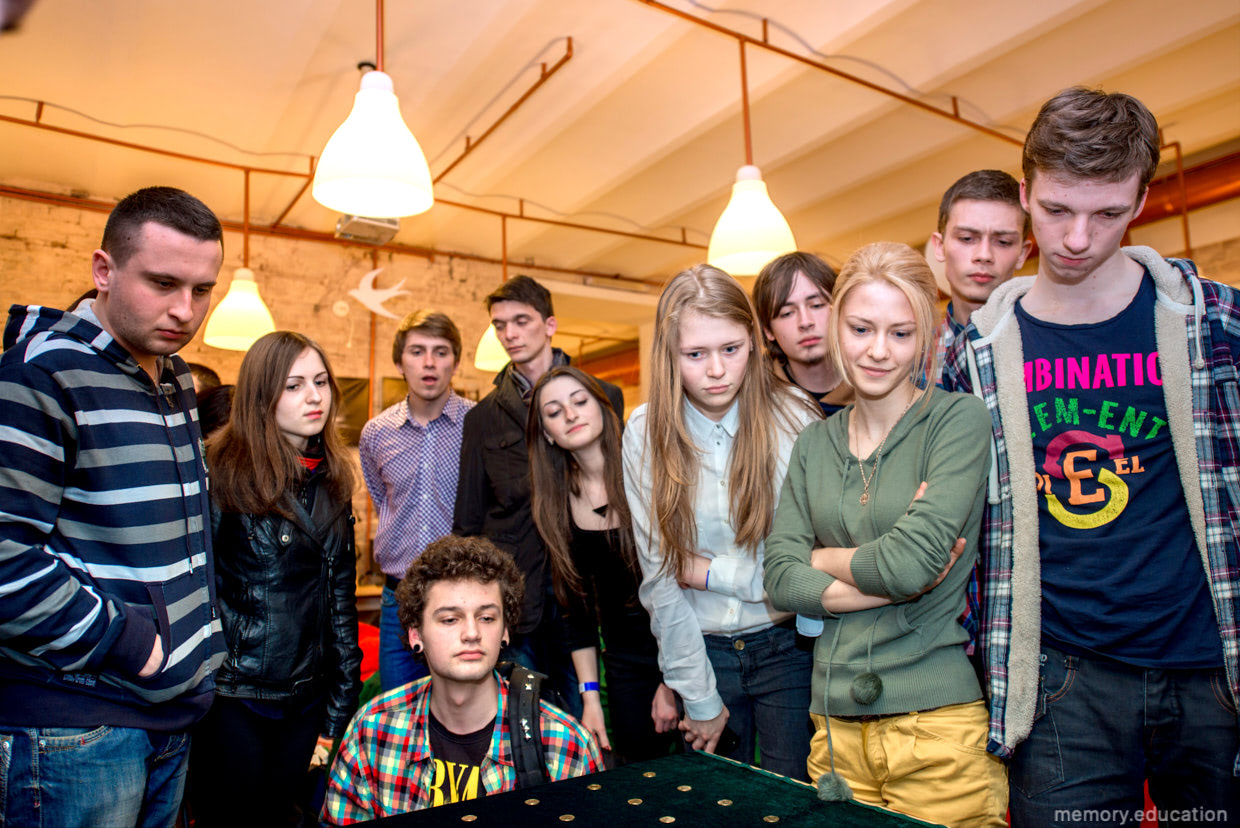
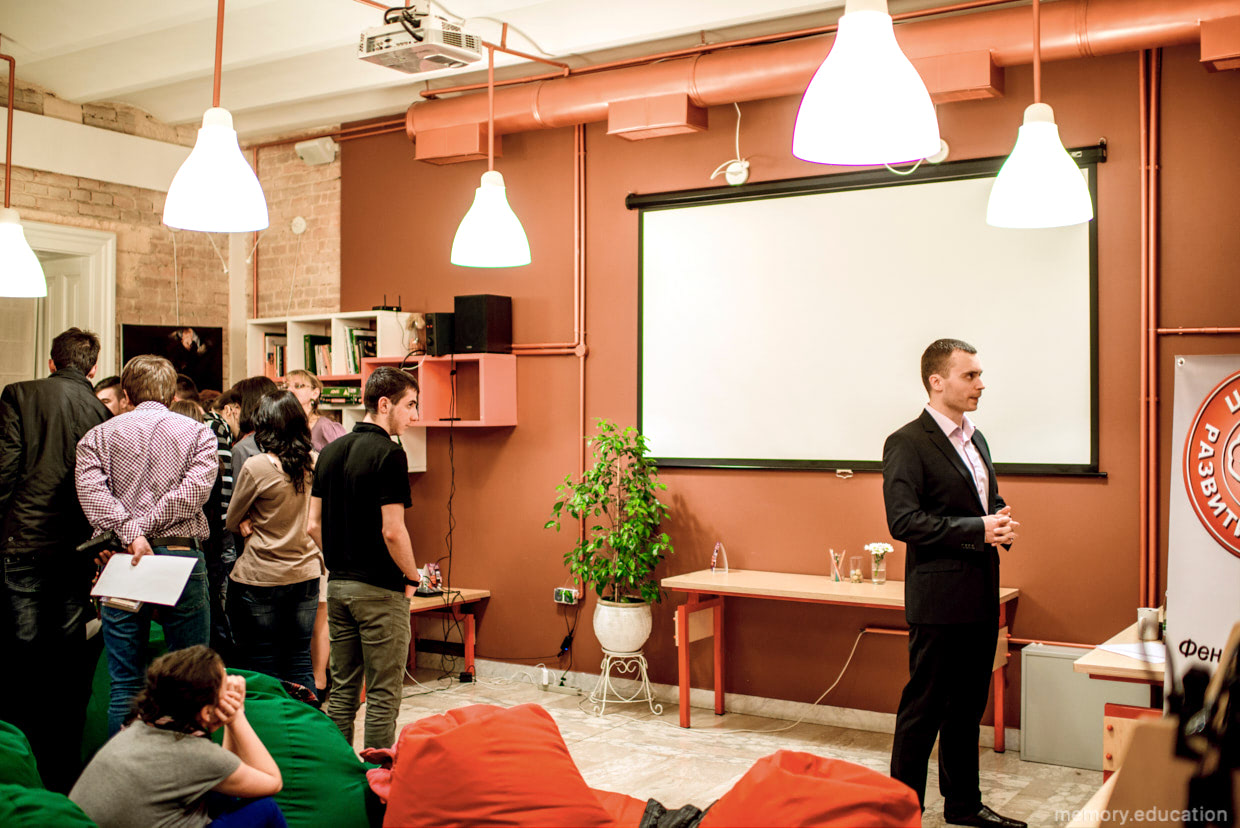
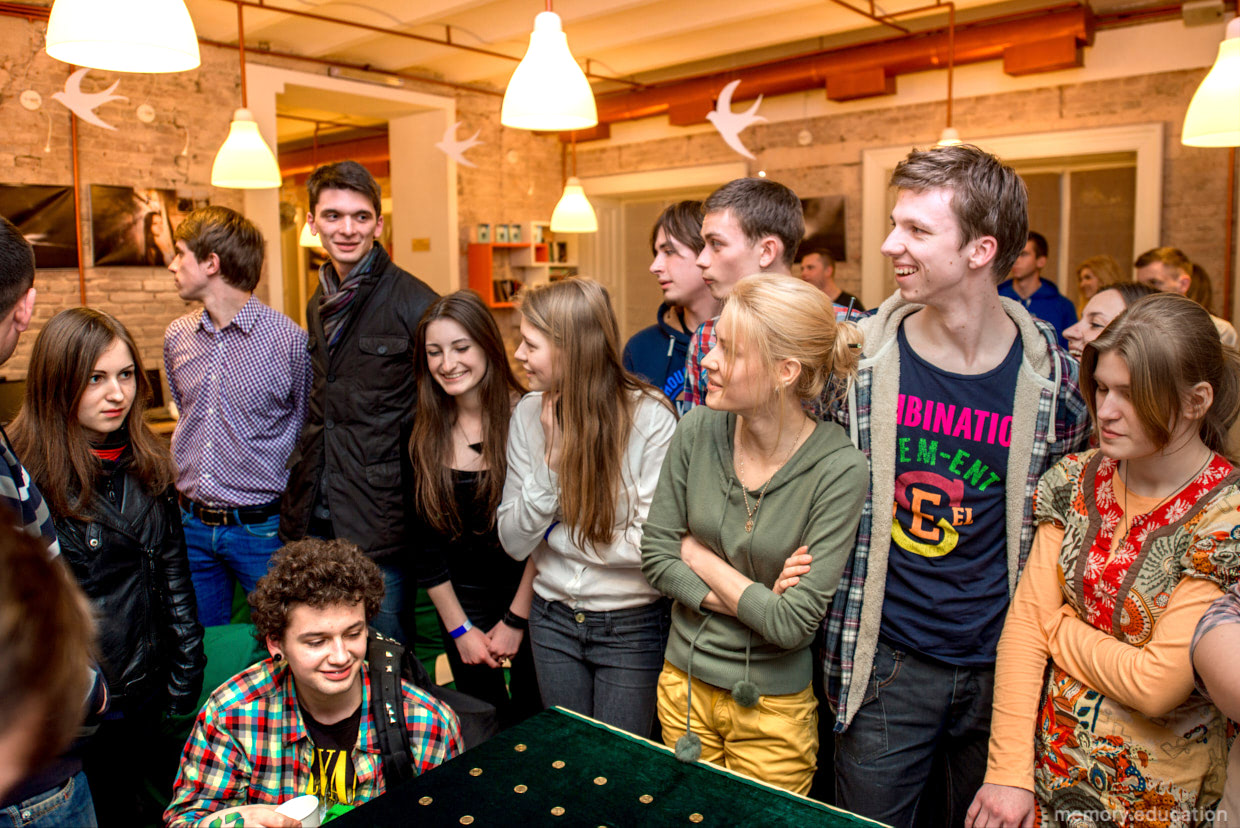
- The fifth coin in the ninth column!
- Tails.
- And what is the coin at the intersection of the fourth row and the seventh column?
- Tails again.
- The sixth in the bottom row, if you count from right to left?
- Heads.
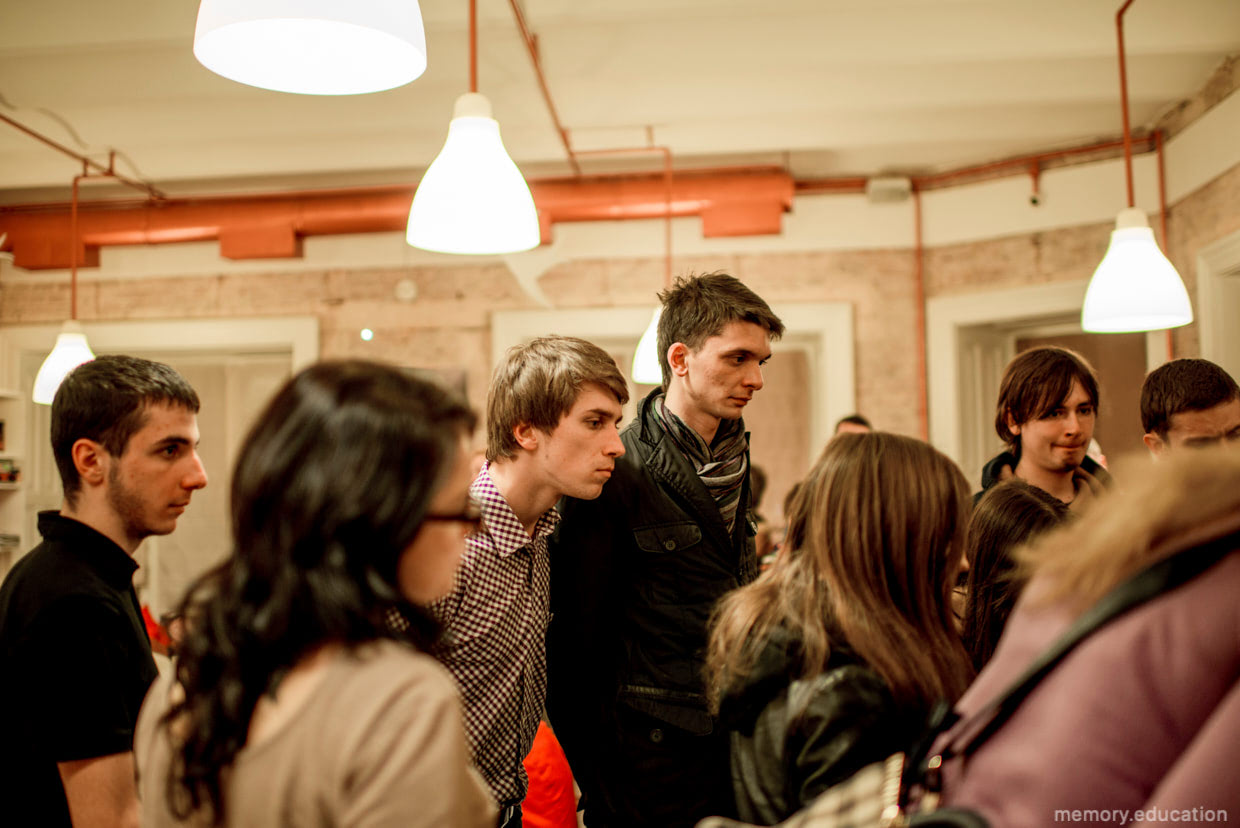
In Kharkiv, I called a girl from the hall to assist me. And then I turned to the wall.
The girl took turns giving the floor to the audience. The person calls the order number, under which I have to memorize. And then says information as complicated as he can come up with: hard to pronounce words in his native or foreign language, rows of numbers, and his name at the end. Then the next person, until the audience is exhausted.
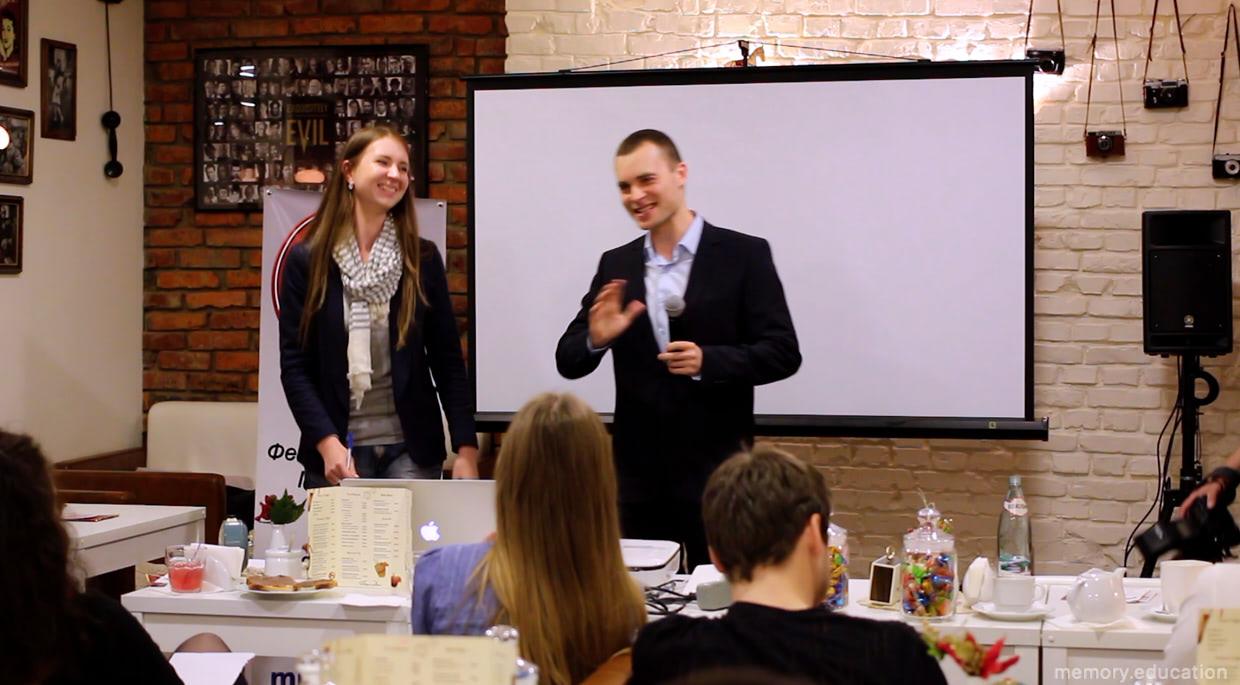
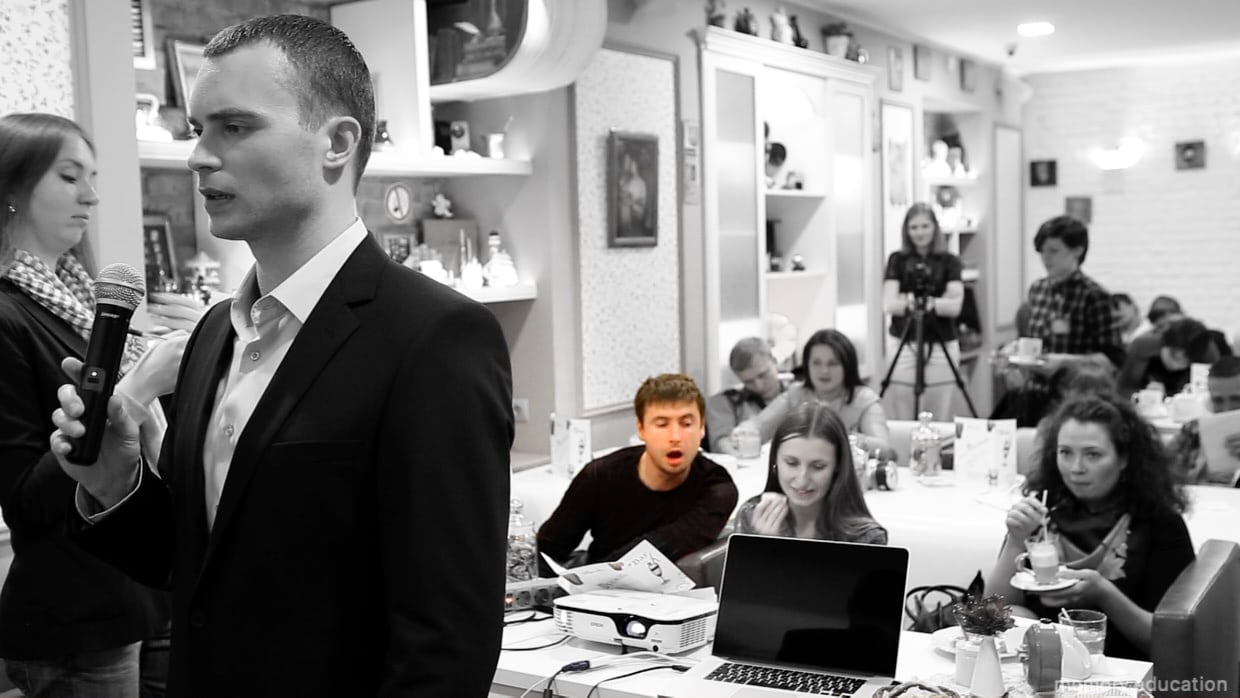
- What was number eighteen?
- Quintessence, simulacrum, six hundred and twenty-seven thousand eight hundred and thirty-two, Vladimir.
- And what did Snezhana say?
- Eyjafjallajöküdl, rhytidectomy, nine hundred and forty-three thousand five hundred and seventy-two. It was number seven.
- Cazuar?
- It was number fourteen. Cazuar fish. There’s also apologetics and five hundred and thirty-one thousand seven hundred and forty-six. Valera said.
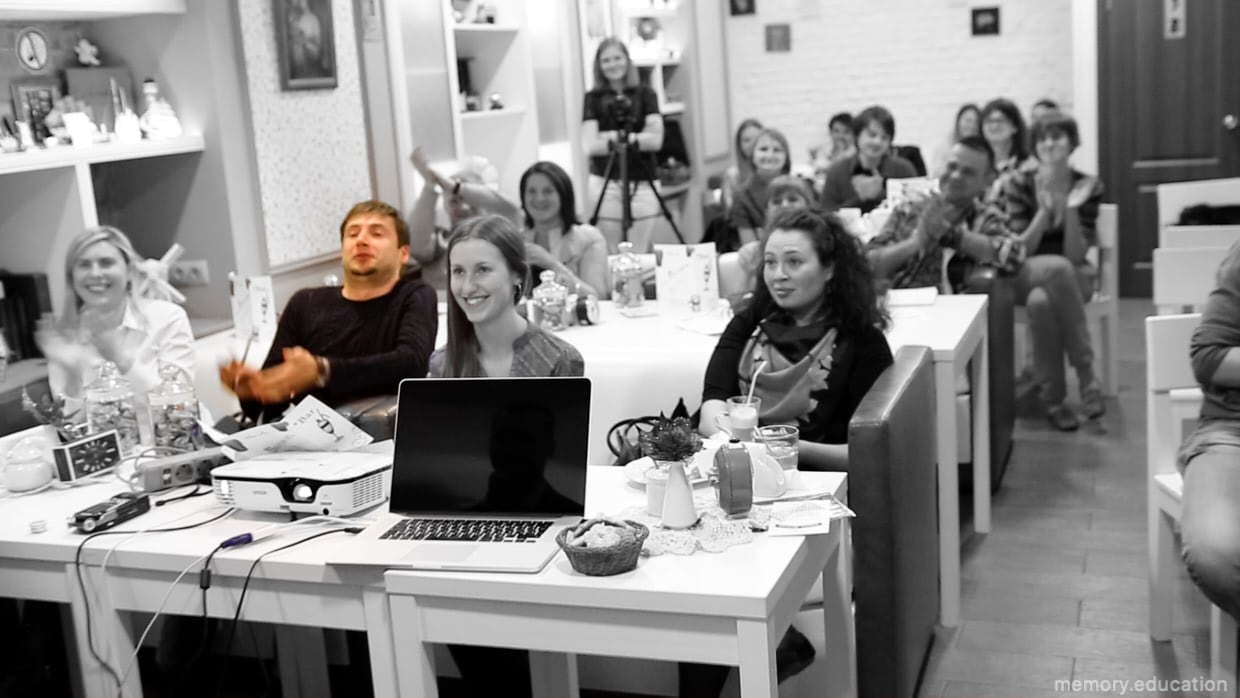
Memory training
And these are already closed training in universities and corporations. Companies rarely allow photography, but sometimes it is possible to make a good report.
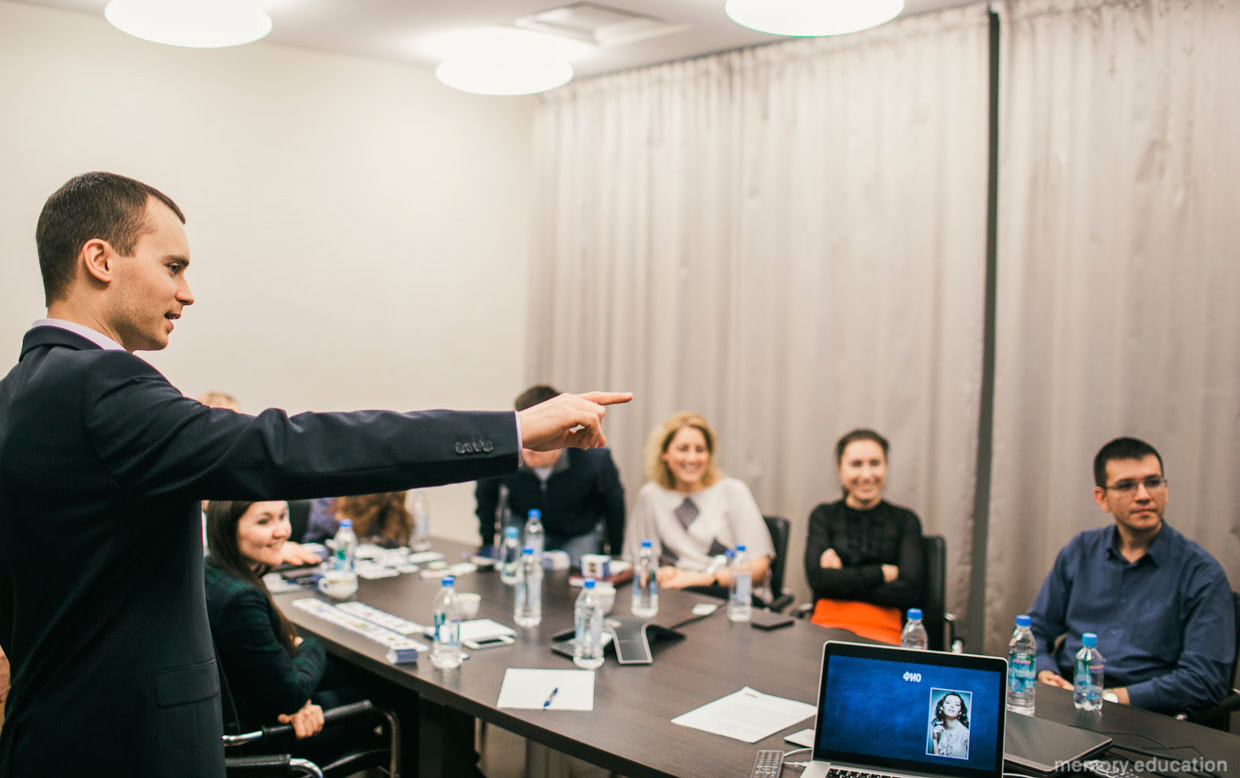
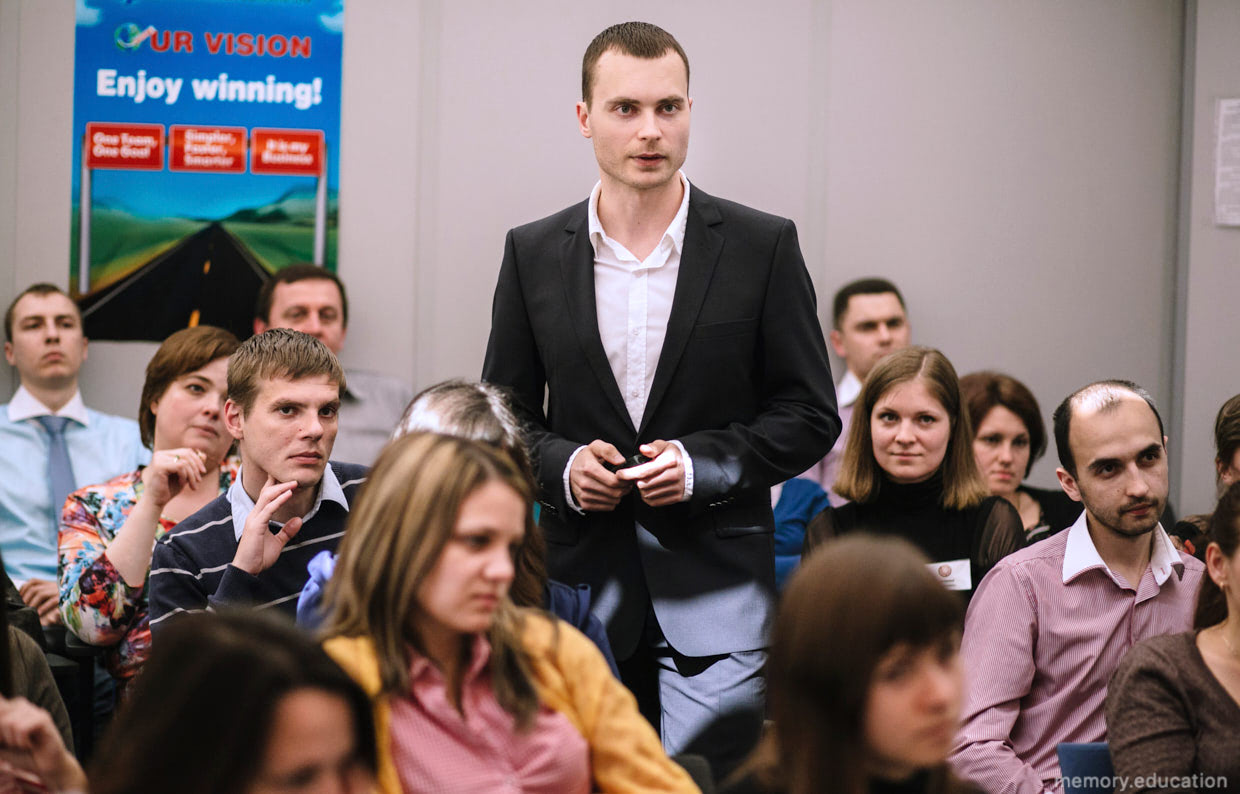
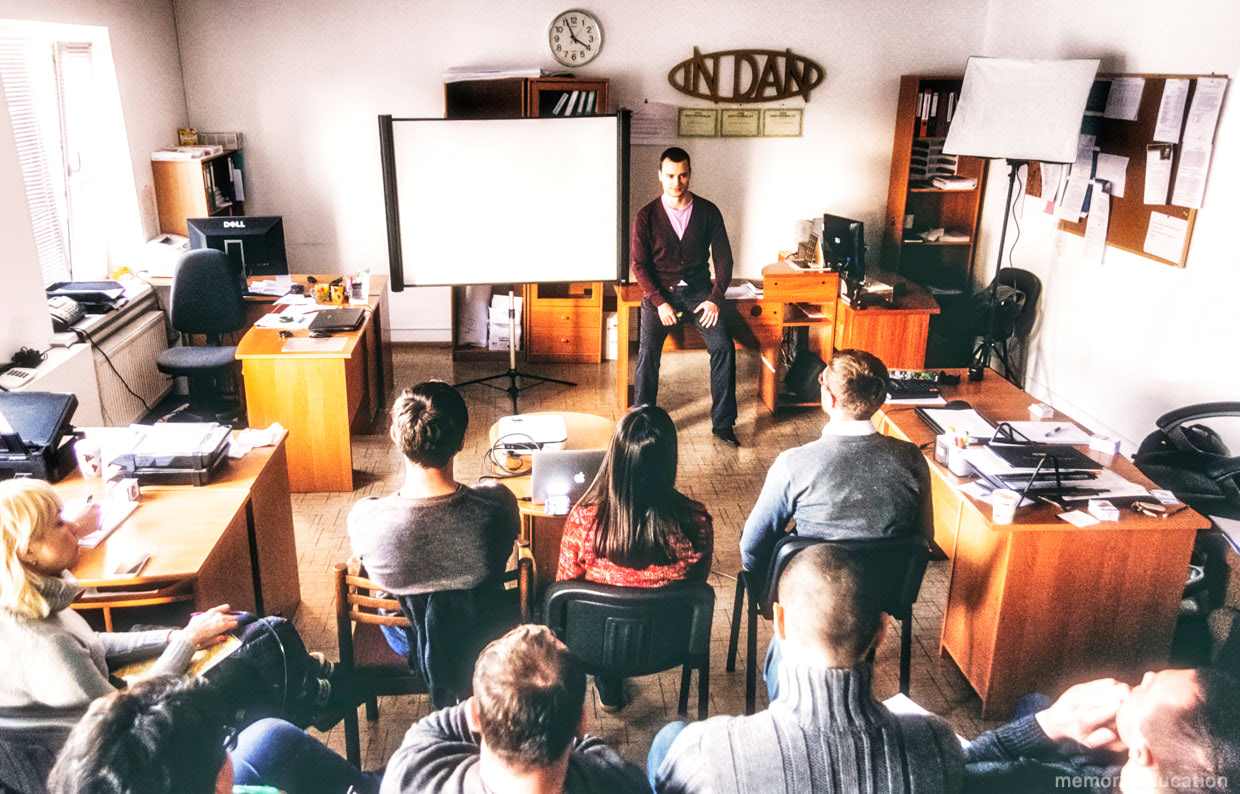
- What does your holding company do? What do you trade-in and what services do you provide?
- We sell a wide range of goods. We also produce furniture. And... coffins.
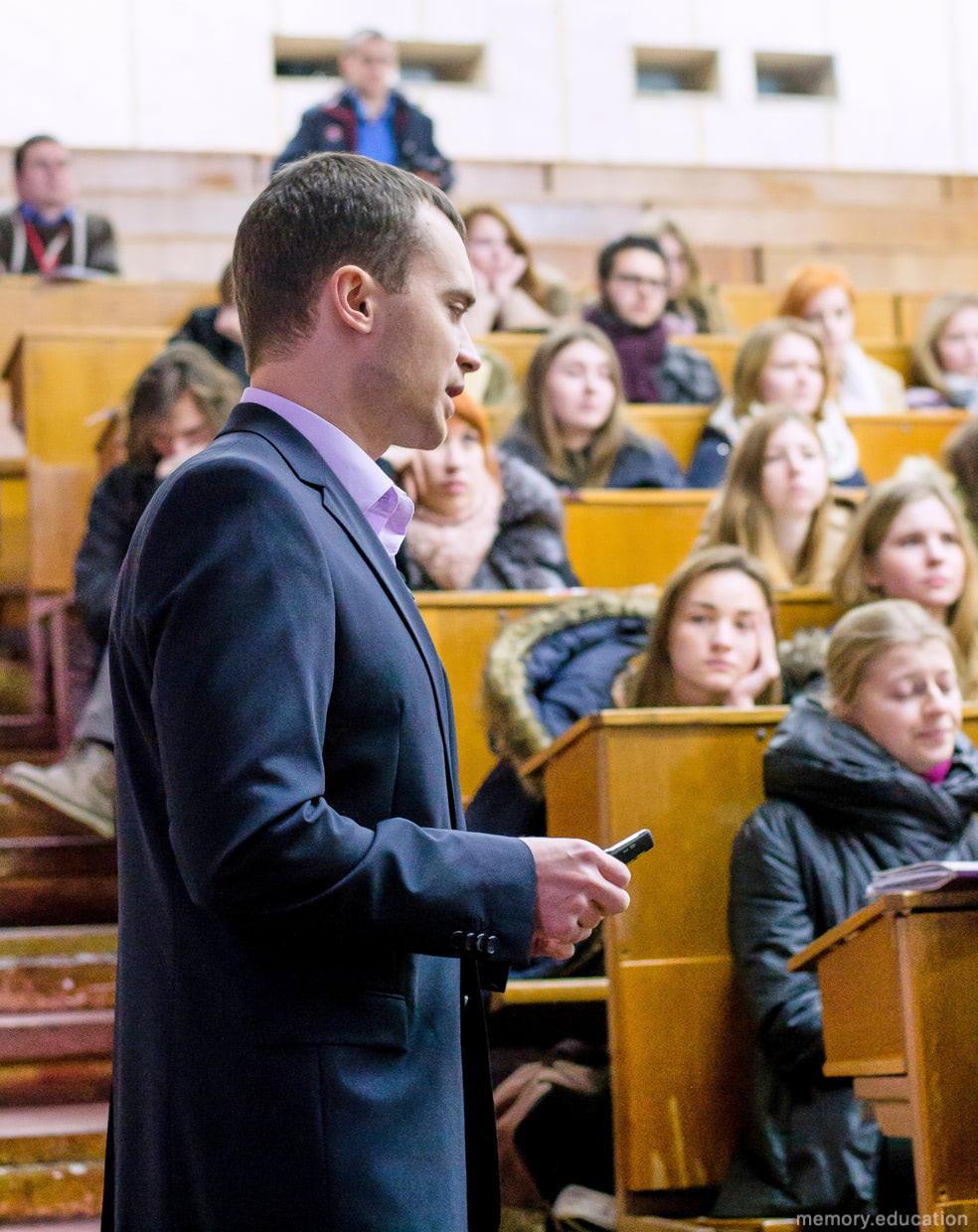
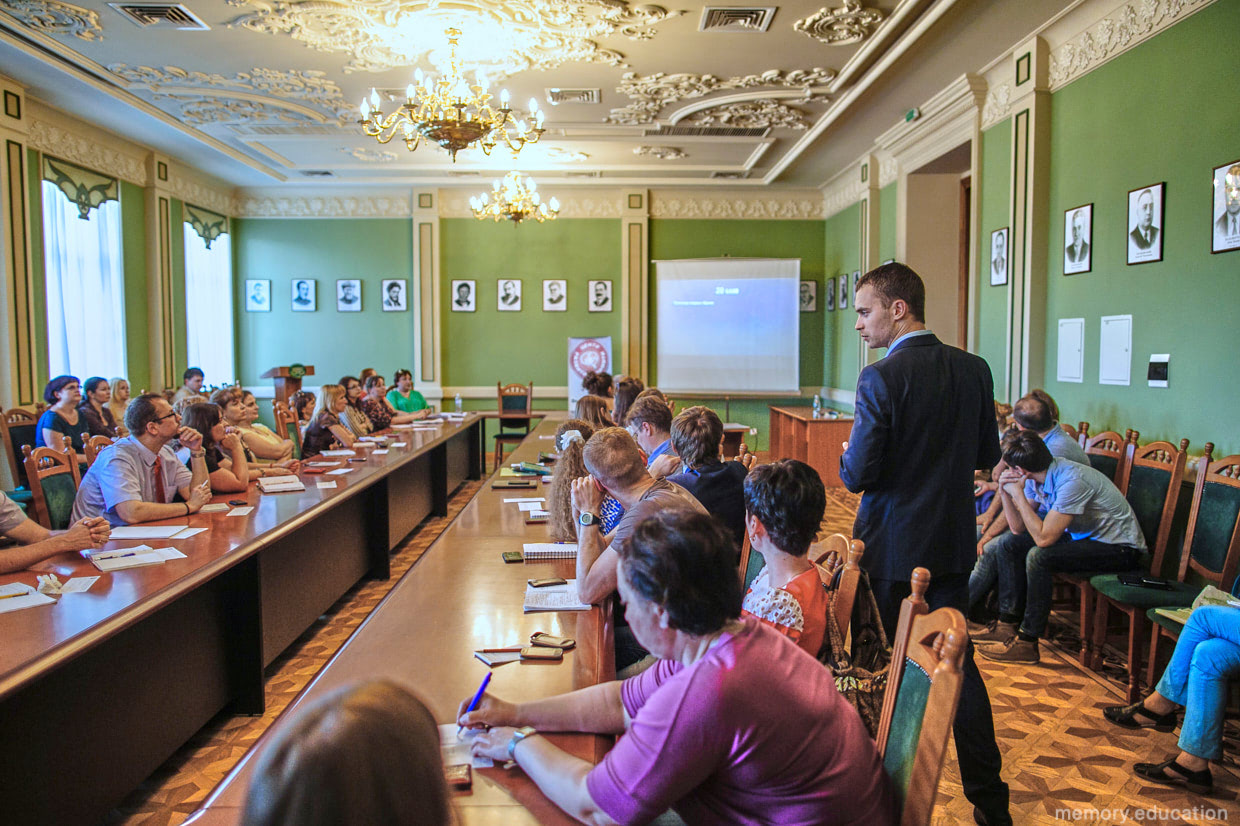
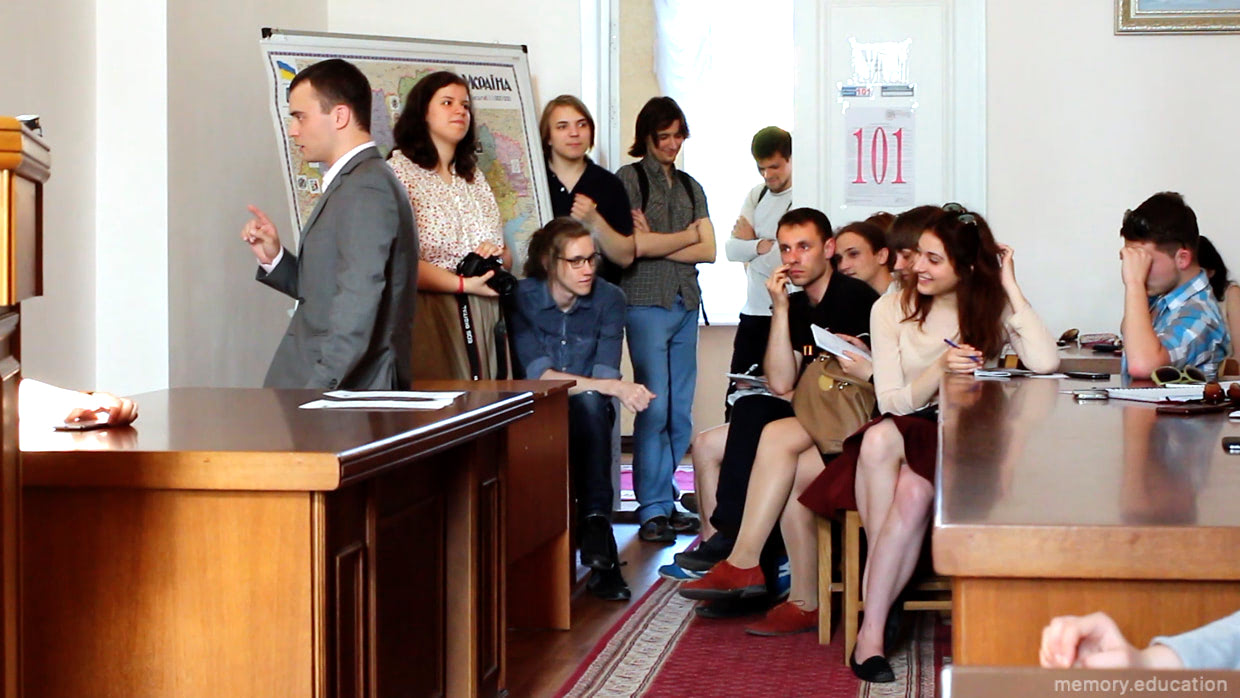
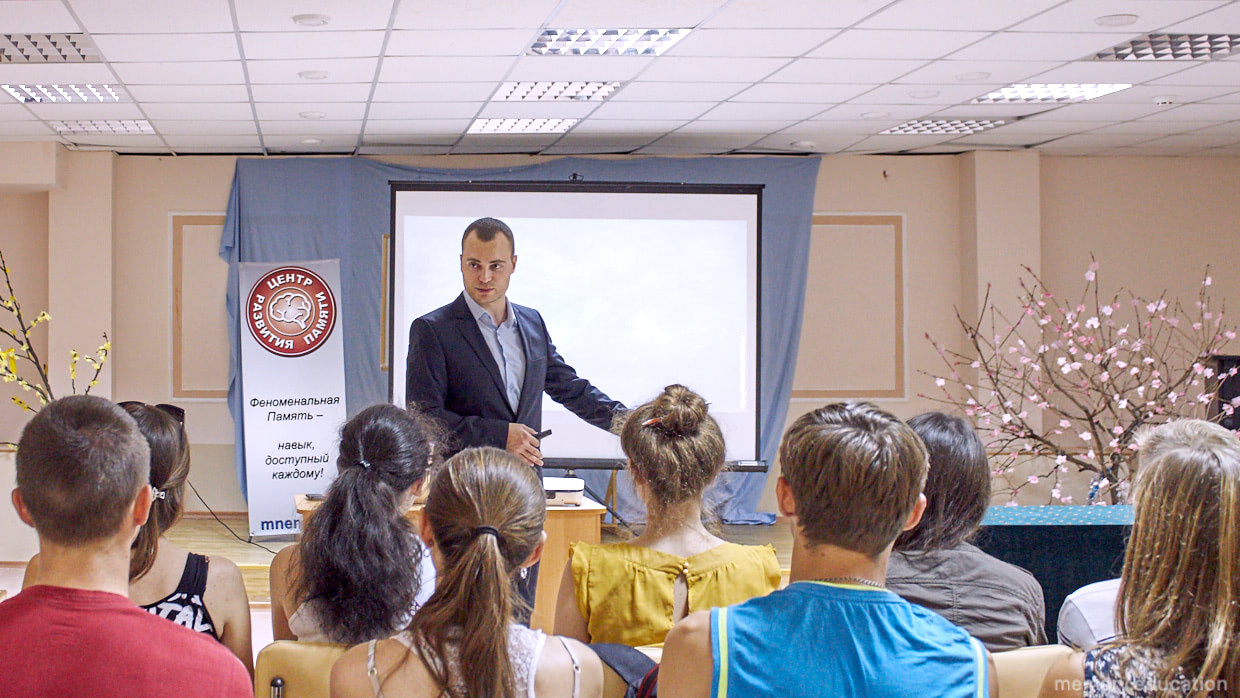
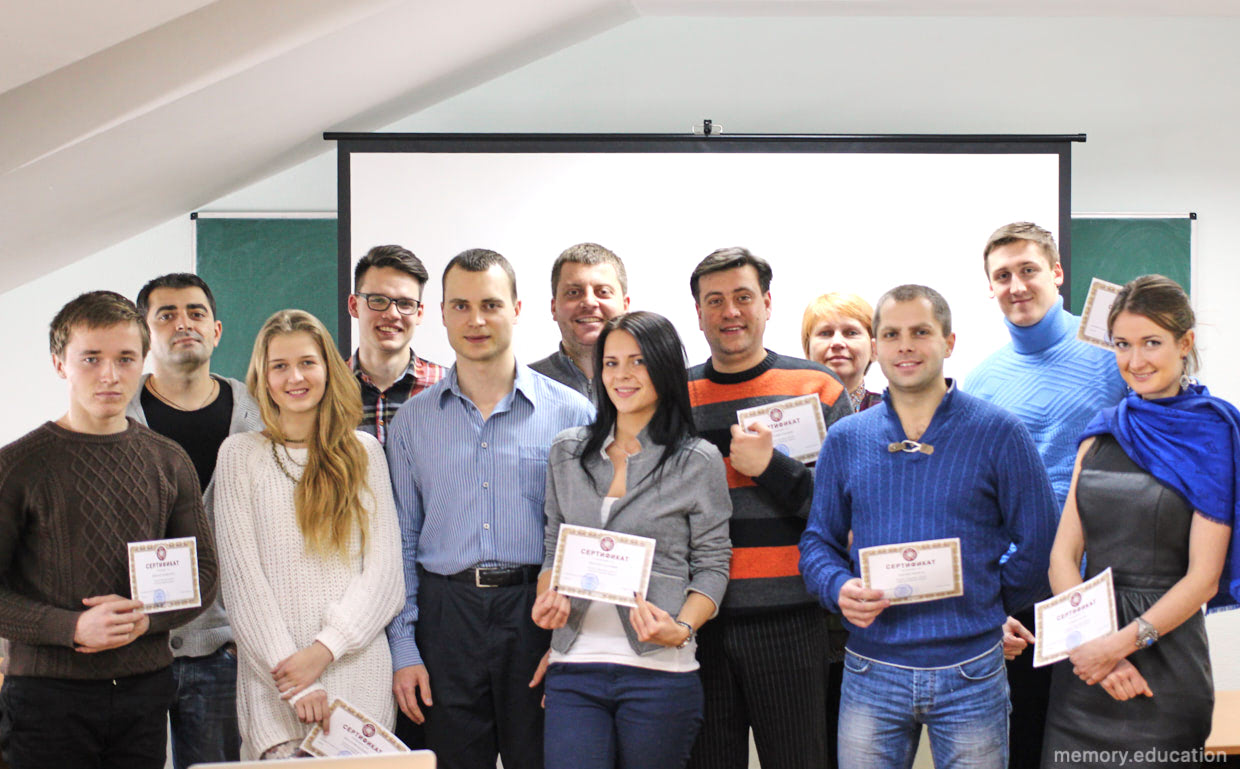
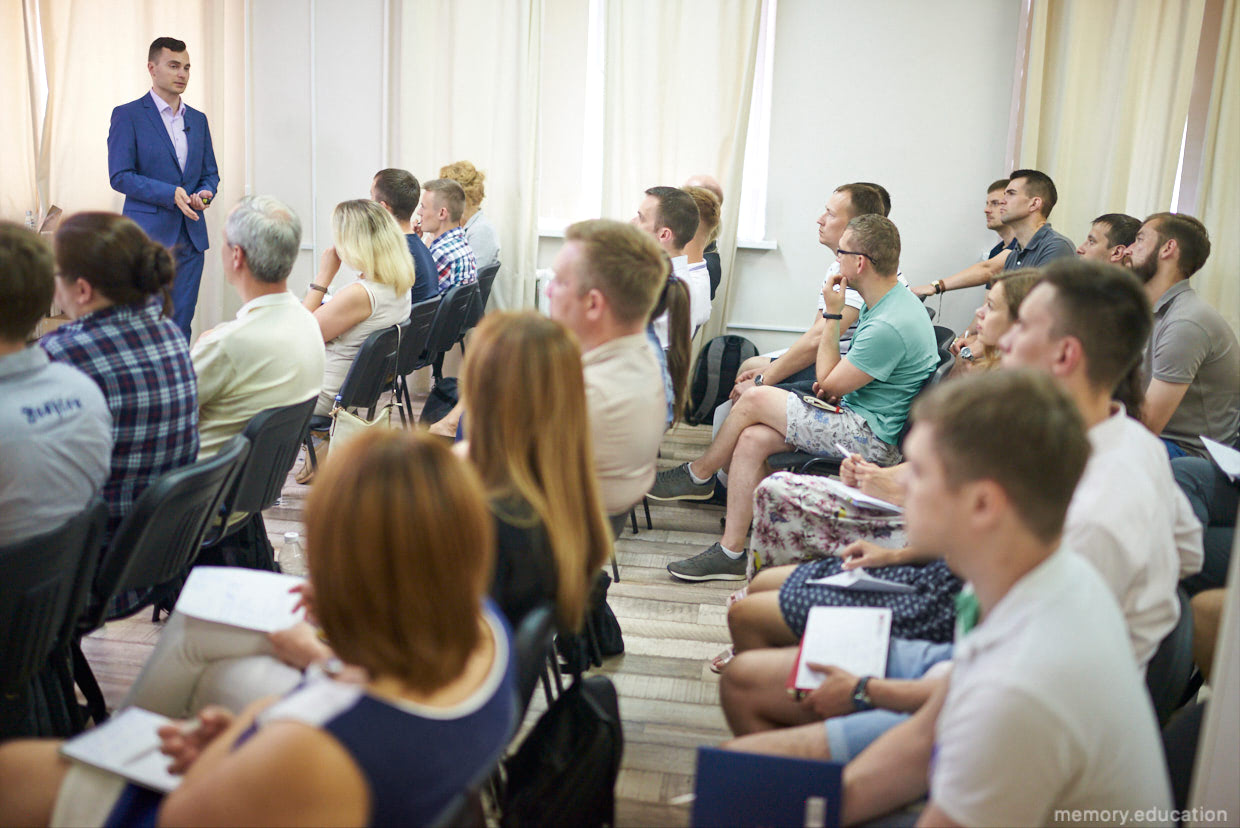
I usually had 20-30 people sitting in the auditorium during a training session. And I could manage them easily. If they asked for more, we added chairs. A little more or a little fewer people came, I didn’t notice any difference.
In 2015 I did an online training session. And I realized that I was not pulling more than 12 people. I could see every face, I could tell by the expression in their eyes what mistakes were made, and I corrected them immediately. The involvement in the process is such that I need at least a week to recover.
And when I became convinced that people learn the skill faster in this format, I’ve been trying to teach only online ever since.
At a regular training session, you can sit in the back. Here you can’t sit in the back, I see everyone
Who I help
Different people need memory for different purposes. I help everyone:
Schoolchildren and students—upload textbooks in their heads, study without cramming and pass exams without cribs.
Foreign language learners—memorize 50-100 new foreign words in 1 hour and learn a phrasebook during a flight to another country.
Professionals—memorize a collection of official information in 1 evening and learn a new profession in 3 weeks.
Businessmen and executives—keep in mind the information about competitors and the history of relations with each client: names, birthdays, phone numbers, connections, habits, strengths, and weaknesses.
Speakers in public—do not forget the speech and the sequence of statements, speak without paper, and do not get lost in thought.
People in everyday life—write information down immediately in the brain. Do not forget things, schedules, promises, requests, and errands. Remember the names and faces of dozens of people the first time. Maintain working memory until old age.
How I’m different
I make it so that people who have previously read memory books and taken memory courses can finally be able to memorize.
I help them stand out from those who use Google instead of memory. Give you the opportunity to memorize difficult things. I prove that the skill of phenomenal memory can be mastered by anyone.
I want as many people as possible to learn to use their memory and there will be fewer empty-headed consumers of information. To that end, I share free memory Advice and talk about memory for free in the Journal and on YouTube.
I cannot help those who are not ready to train and believe in “magic pills” for memory.
I do not look at the age, sex, or status of the client. I sacrifice decency for the sake of the result: I can easily tell an obscene joke at the training if it helps to explain the material clearly.
Share
Tweet
Send
Pin
Submit
Post
Send
“Come to the training. I would be glad if I could be useful to you”
